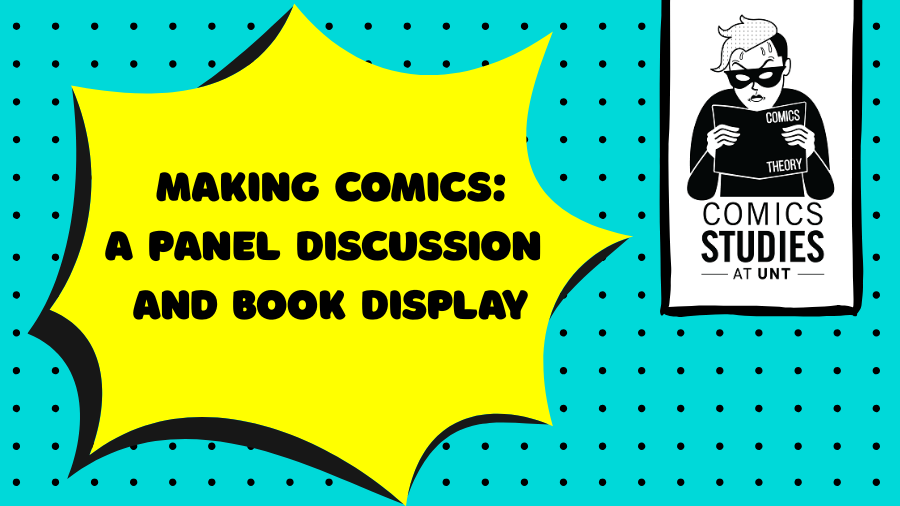
11/10/2025 - Making Comics: A Panel Discussion and Book Display
This event will feature a panel of local comics creators discussing the process of making comics, from ideas, writing, and storyboarding, to drawing, inking, and coloring, to publishing original comics and comic art. It will also include a display of library special collections materials and some recently acquired circulating materials related to comics-making that will be available for browsing and check-out through our PopUp Library! Sponsored by the Comics Studies at UNT community and the UNT Libraries. Event Details This event will feature a panel of local comics creators discussing the process of making comics, from ideas, writing, and storyboarding, to drawing, inking, and coloring, to publishing original comics and comic art. It will also include a display of library special collections materials and some recently acquired circulating materials related to comics-making that will be available for browsing and check-out through our PopUp Library! Sponsored by the Comics Studies at UNT community and the UNT Libraries. Event Details Panelists Sarah Mensinga Sarah Mensinga’s debut graphic novel, Kindred Dragons, is available on October 14th! She has also illustrated multiple books, including Flipping Forward Twisting Backwards, the Trillium Sisters series, and the New York Times bestseller, Different: A Great Thing to Be. Her short stories have appeared in comic anthologies such as Flight, Volume 4, Flight, Volume 5, and Fablewood. She’s published three indie books, and she has also worked on a variety of animated movies and TV shows, including The Adventures of Jimmy Neutron, Escape from Planet Earth, and The Ant Bully. Devin Kraft Devin Kraft is a comic artist originally from Roswell, New Mexico, who had the great fortune to live and study in Japan for a year as part of an exchange program with Hosei University. During that time, he studied the manga industry first-hand and experimented with a wide range of Japanese pens. To date, Devin has completed more than 30 comics, several short works, worked on a variety of covers for clients like IDW, Heavy Metal, Sumerian Comics, Literati Press, and drawn thousands of poster designs. He has successfully run over ten Kickstarter campaigns and exhibited at over 100 comic, anime, and game events. Currently based in Dallas/Fort Worth, TX, Devin draws at night and manages the video department at White Unicorn Agency during the day. Jake Jacobson Jake Jacobson (under the pen name Jake Ekiss) has over a decade of experience creating independent comic book and illustration work. He was a co-founder of former Dallas-Based comic Studio Space-Gun, and while with Space-Gun organized the nation-wide comic event “Indie Comic Book Week” in 2009 to put independent comics on brick-and-mortar shelves. Jake’s own work can be seen in several of his indie books including but not limited to the Synesthetic Anthology, Sun Dogs, and When the Devil Drives. He also did comic book and card art for the collectible card game The Spoils and has contributed retailer incentive covers to Titan’s Doctor Who comics. The original art for one of these covers still hangs to this day behind the counter of local comic shop More Fun Comics and Games on the square. Emily Dickenson Emily Dickenson is a professional comic book artist for the series Author Paradox, freelance illustrator, and project manager for the UNT Comic Book Club. She primarily works digitally because she is interested in accessible, grassroots art forms (zines/quilting/assemblage). But no matter the medium, her true passion is storytelling! She is currently attending the University of North Texas and will be opening a studio with her infinitely talented peers after graduation. Dr. Joanna Davis-McElligatt Joanna Davis is an Assistant Professor of Black Literary Studies and Cultural Studies at the University of North Texas, and Affiliate Faculty at Women’s and Gender Studies, and LGBTQ+ Studies. She is the author of Black Aliens: Kinship in the Cosmic Diaspora, forthcoming from The Ohio State University Press as part of the New Suns: Race, Gender, and Sexuality in the Speculative Series, and the co-editor of four volumes, including BOOM! SPLAT! Comics and Violence (UP of Mississippi 2024). Her most recent comic can be found in Black Punk Now (Soft Skull Press 2023). public_services_presentations_and_lectures
Posted:
11/10/2025
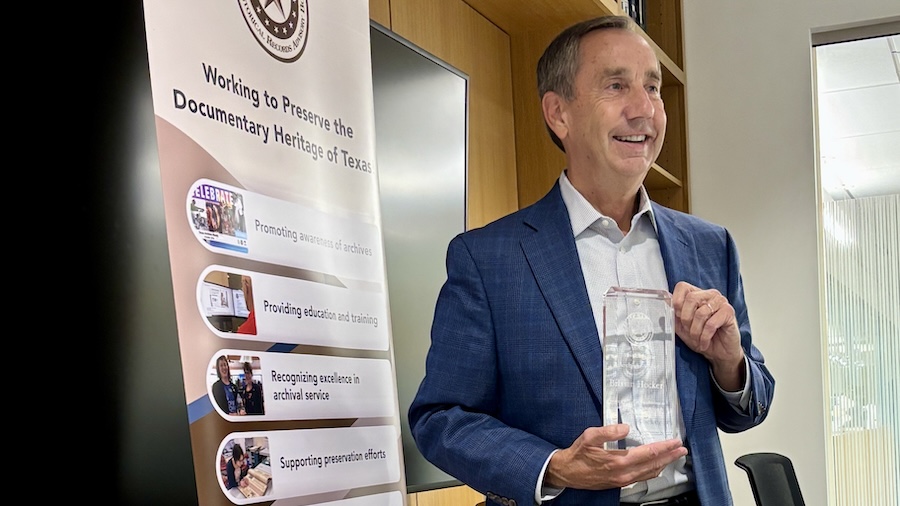
10/22/2025 - Library Advocacy Board member Brian Hocker receives UTHRAB Advocacy for Archives Award
UNT Libraries Acquires Rare First Edition of the Nuremberg Chronicle, One of the Most Ambitious Illustrated Books of the 15th Century The Texas Historical Records and Publicans Commission (THRAB) has awarded UNT Library Advocacy Board member Brian Hocker the prestigious Advocacy for Archives Award. This award acknowledges an individual or organization that has made significant contributions to ensure the preservation and availability of the historical record of Texas. Brian was presented with the award during a ceremony in Dallas on October 17, 2025. Brian was nominated for this award in recognition of his extraordinary and visionary efforts to preserve the archive of the first television news station in Texas (NBC/5/KXAS- formerly, WBAP-TV), and to ensure that the archive is made widely and freely accessible to the public. Brian Hocker, serving as Vice-President for Digital Media Production and Research at NBC5/KXAS, recognized the need to preserve the news station’s archive in 2013. As NBC5 was planning to move from their long-standing home on “Broadcast Hill” in Fort Worth to a new headquarters near DFW Airport, Brian recognized the urgent need to find a repository willing to accept the large archive of news footage which had accumulated in the basement for six decades. After identifying UNT Special Collections as a potential home for the archive, Brian took unprecedented action to negotiate a copyright agreement and significant financial contribution from the General Manager at NBC5 and executives at NBC Universal. Brian retired from NBC5 in 2022, but he continues to support the archive and UNT Libraries. As a member of the UNT Libraries Advocacy Board Brian supports many initiatives within the UNT Libraries, and continues his support of the NBC5/KXAS archive through frequent outreach and community advocacy efforts. Congratulations to Brian Hocker on this much deserved award! special_collections_in_the_news
Posted:
10/22/2025
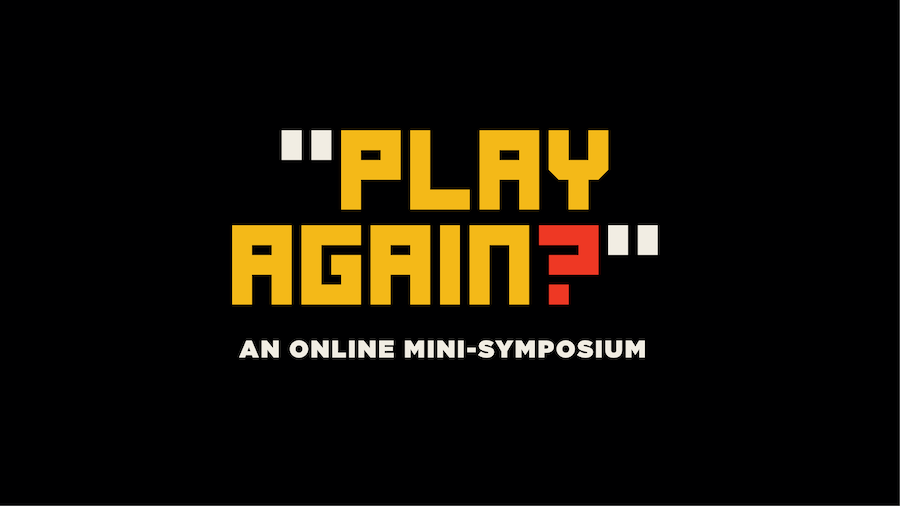
10/22/2025 - Soundscapes of Simulation: A Showcase of Research on the Music and Sounds of Simulation Video Games
The University of North Texas Music Library is pleased to announce “Play Again?”: An Online Mini-Symposium to be held February 13, 2026 from 1:00 PM– 4:00 PM CST. This symposium is a part of the University of North Texas Music Library’s “Press Start” symposia series. The University of North Texas Music Library is pleased to announce “Play Again?”: An Online Mini-Symposium to be held February 13, 2026 from 1:00 PM– 4:00 PM CST. This symposium is a part of the University of North Texas Music Library’s “Press Start” symposia series. The theme for this online mini symposium is Soundscapes of Simulation: A Showcase of Research on the Music and Sounds of Simulation Video Games. Call for Proposals: We are accepting proposals for paper presentations on various aspects of sound and music in video games with a preference of papers focusing on the use of sound and music in simulation video games. Interdisciplinary approaches are particularly encouraged. We accept proposals for the following formats: Presentation: Speakers will be given 30 minutes each - 20 minutes for presentation, 10 minutes for discussion. Lighting Talk Presentation: Speakers will be given 15 minutes each - 10 minutes for presentation, 5 minutes for discussion. Posters: Posters will be published and presenters will be given 10 minutes for open discussion with the audience. Please submit proposal abstracts of no more than 500 words in text submission or uploaded as a single PDF file or Microsoft Word document (.doc, .docx) by November 21, 2025. Presenters will be notified of their acceptance into the program on December 5, 2025. Submissions will be reviewed anonymously, so please remove identifying information from the abstract itself. Find out more and submit a proposal on the “Press Start” symposia series webpages. music_in_the_news_collection_highlight
Posted:
10/22/2025
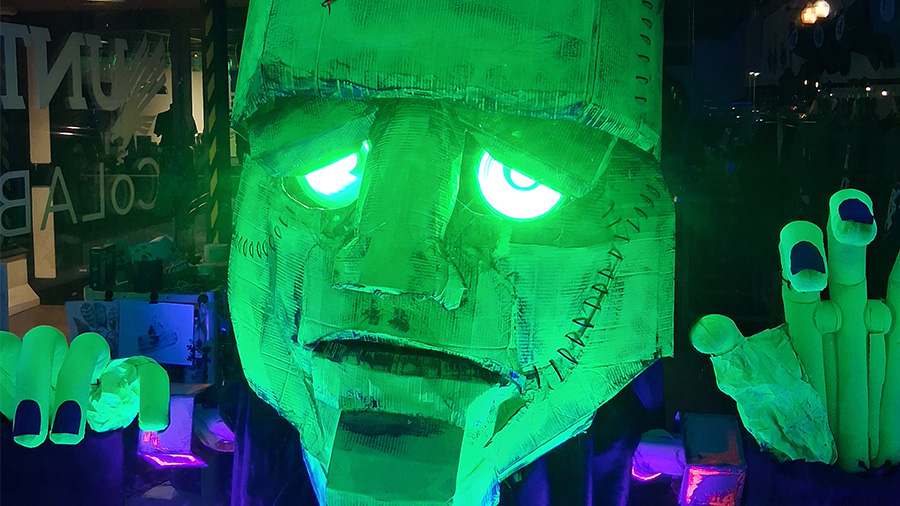
10/22/2025 - Spark Makerspace Helps with Halloween Displays Around Denton
Have you seen all the Halloween festivities at the Square in Denton? Did you know that the Spark at Willis Library helped contribute to some of these fantastic displays? It’s true! The front displays at the UNT CoLab, The Flying Saucer at Cedar Street Park, and the front display at the Denton Maker Center all include elements produced right here in the Spark Makerspace! Have you seen all the Halloween festivities at the Square in Denton? Did you know that the Spark at Willis Library helped contribute to some of these fantastic displays? It’s true! The front displays at the UNT CoLab, The Flying Saucer at Cedar Street Park, and the front display at the Denton Maker Center all include elements produced right here in the Spark Makerspace! For the CoLab, Spark assisted CoLab Director Kristen Kendrick Bigley in the production of laser-cut ooze and lab beaker decorations for the CoLab’s incredible Frankenstein display. They glow so well under the lights at night! Check out the CoLab’s amazing city diorama while you’re there (not built by Spark, but very cool none the less). For UNT Metals and Jewelry Prof. James Thurman’s flying saucer at “Area 940” in the Cedar Creek Park, the Spark vacuum forming machine was used to produce the rim details of the saucer. In the special effects world these would be called “greebles” and the vacuum former and this process are the same used for such effects as the Death Star trench in Star Wars. Lastly, the vacuum forming machine was used again to create candy forms for the exterior of the Denton Maker Center’s Hansel and Gretel Themed display. Expanding Denton’s Halloween efforts beyond the square, multiple venues, including the DMC, have decorated their properties to create a spooky “Nightmare on North Elm Street”. Spark is very excited to have these opportunities to work with university staff and faculty to promote community outreach and we’re looking to do more in the future! Spooky Season is almost over and once Halloween is done these displays will be gone until next year, so get out to the Square and see them! facilities_operations_in_the_news_about_the_libraries
Posted:
10/22/2025
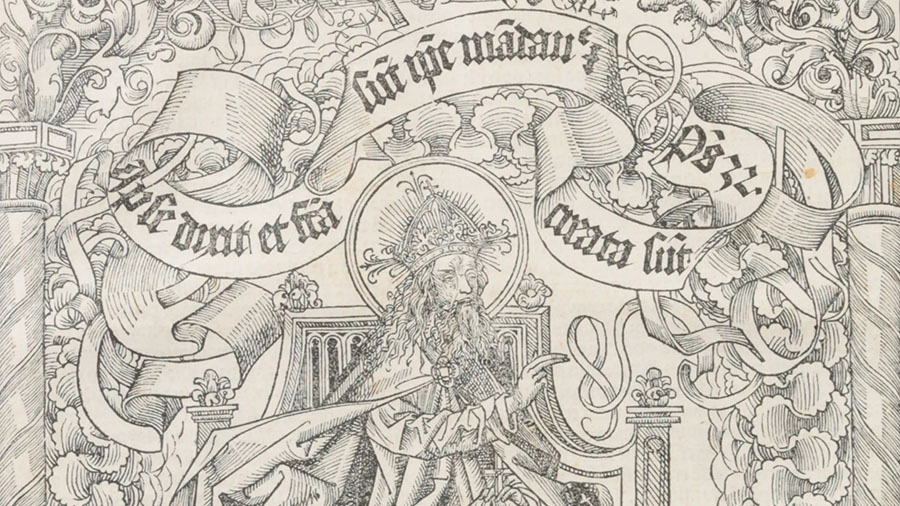
10/20/2025 - UNT Libraries Acquires Rare First Edition of the Nuremberg Chronicle
UNT Libraries Acquires Rare First Edition of the Nuremberg Chronicle, One of the Most Ambitious Illustrated Books of the 15th Century UNT Libraries Acquires Rare First Edition of the Nuremberg Chronicle, One of the Most Ambitious Illustrated Books of the 15th Century The University of North Texas Libraries is proud to announce the acquisition of a remarkable first edition of Liber Chronicarum cum Figuris et Ymaginibus ab initio Mundi—better known as the Nuremberg Chronicle—printed on July 12, 1493, by Anton Koberger in Nuremberg, Germany. Widely regarded as one of the most celebrated and extensively illustrated incunables (books printed before 1501), the Chronicle is a cornerstone in the history of printing. This exceptional copy survives in its original 15th-century binding, featuring the coat of arms of the city of Vienna. It retains wide margins, complete gatherings, and pristine condition with no restorations—qualities rarely found together in surviving examples. “This acquisition is a singular coup for UNT and its students,” says Dr. Samuel Fullerton, Assistant Professor of History. “The Nuremberg Chronicle represents not only a foundational moment in the history of early modern Europe and its nascent printing industry, but also a critical turning-point in European perceptions of the wider world. UNT students interested in the early modern humanities should rejoice!” The addition of the Nuremberg Chronicle enhances UNT Libraries’ distinguished collection of medieval and Renaissance texts. Rare books and manuscripts spanning the pre-modern era provide extraordinary opportunities for object-based learning and original research. Engaging directly with these materials allows students to experience primary sources firsthand, deepening their understanding of the past and its connections to the present. This fall, faculty across disciplines will incorporate the Chronicle into their teaching: Dr. Carey Gibbons, Assistant Professor of Art History, will use the Chronicle in her course on the history of illustration, noting, “This ambitious, richly illustrated publication invites us to step into the creative and intellectual world of the early printed book, offering an inspiring example of innovative page design and dynamic visual storytelling.” Dr. Megan Nieberding, Lecturer in the Department of Physics, plans to integrate the Chronicle into her Astronomy courses, saying, “It fits well with our discussions, especially since we dedicate a large portion of class to the Ptolemaic vs. Copernican view of the solar system.” Dr. Michael R. Gibson, Professor of Communication Design, has encouraged students to engage with the Chronicle, calling the acquisition “crucial for the array of learning communities we serve here.” Dr. Kelly Donahue-Wallace, Professor of Art History, will feature the Chronicle in her course History of Prints. She explains, “The Nuremberg Chronicle provided a first glimpse of what an illustrated printed book could be. It marks an important shift in thinking about woodcut illustrations. It is incredibly important for students to see this transition in media culture.” The Nuremberg Chronicle stands as a powerful artifact at the intersection of art, science, and history. Its encyclopedic content encompasses cosmology, theology, geography, medicine, and genealogy, making it an invaluable resource for interdisciplinary teaching and research. “UNT students across campus, from the Fine Arts, to Communications, History, Literature, and Languages, to Political Science, Geography, and Anthropology – and more – will each find the Nuremberg Chronicle an important source for study and inspiration,” says Dr. Kathryne Beebe, Associate Professor of Medieval History. “Thanks to this exciting acquisition, all at UNT now have the opportunity to hold history in their hands.” Often described as the first illustrated encyclopedia, the Nuremberg Chronicle synthesizes classical, biblical, and medieval sources into a sweeping visual history of the world from Creation to the Last Judgment. Its author, Hartmann Schedel (1440–1514), was a physician, humanist, and book collector whose extensive library informed the text. The volume is richly illustrated with more than 1,800 woodcuts—city views, genealogies, maps, portraits, and biblical scenes—many reused throughout the book. Printed by Anton Koberger, then Europe’s largest printer, the Chronicle was financed by Nuremberg merchants Sebald Schreyer and Sebastian Kammermeister. Their vision produced a massive folio of over 600 pages, issued in both Latin and German editions in the same year. This copy represents the Latin first edition. “We are thrilled to bring this exceptional volume to our collections,” said Morgan Gieringer, Head of Special Collections, UNT Libraries. “It is not only a landmark in the history of printing and illustration, but also a vivid expression of the Renaissance humanist worldview—combining religious thought, empirical observation, and classical learning in ways that profoundly shaped early modern scholarship.” This acquisition strengthens UNT Libraries’ role as a leader in cultural heritage stewardship and reaffirms its commitment to preserving the material legacy of the early modern intellectual tradition. The volume will be unveiled during a public event on November 11, from 1:00–3:00 p.m. on the first floor of Willis Library. All are welcome to join in celebrating this remarkable acquisition. The Nuremberg Chronicle is housed in UNT Special Collections and available for viewing by appointment in the Judge Sarah T. Hughes Reading Room. For more information or to schedule a visit, please contact specialcollections@unt.edu. special_collections_in_the_news
Posted:
10/20/2025
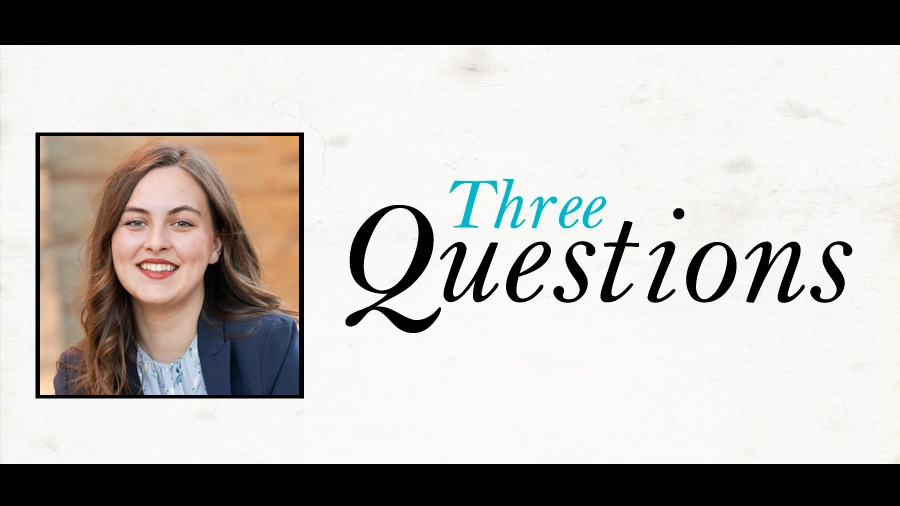
10/14/2025 - Three Questions with Jane Anne Carroll
Jane Anne Carroll is a first year masters student at UNT. She has worked for The Grace Museum (Abilene), The Old Jail Art Center (Albany), and MuseWork. She has a passion for public history and spends her free time reading all of the signs at museums, state parks, and historical markers. Three Questions is an initiative to share the value that our faculty, students, and external patrons derive from using the Portal to Texas History at UNT Libraries. 1. How important is the Portal in your teaching, learning or research? The project I worked on at The Grace Museum highlighted Abilene history, and the Portal was instrumental in allowing me to access a wide variety of sources about my hometown. I was able to quickly find photos and documents relating to Abilene history, such as Independence Day Celebrations, immigrant heritage, and environmental advocacy. 2. How has the Portal changed the way you approach your research, teaching or learning? With the Portal, I can dive right into sources. It serves as a great jumping off point and often inspires endless research questions. These questions have often compelled me to take a different approach to topics than the initial search may suggest. For example, when looking into the history of Civilian Conservation Corps (CCC) structures in Abilene, I discovered a story of integration and segregation. 3. What do you want others to know about your research, teaching or learning? My research on the CCC crews at the Abilene State Park not only tells the story of the first all-black CCC crew in Texas, but also connects Abilene to national events, revealing local attitudes and experiences. This perspective invites a more personal history of ordinary people, and I find the approach captivating. Jane Anne Carroll is a first year masters student at UNT. She has worked for The Grace Museum (Abilene), The Old Jail Art Center (Albany), and MuseWork. She has a passion for public history and spends her free time reading all of the signs at museums, state parks, and historical markers. external_relations_in_the_news_three_questions
Posted:
10/14/2025
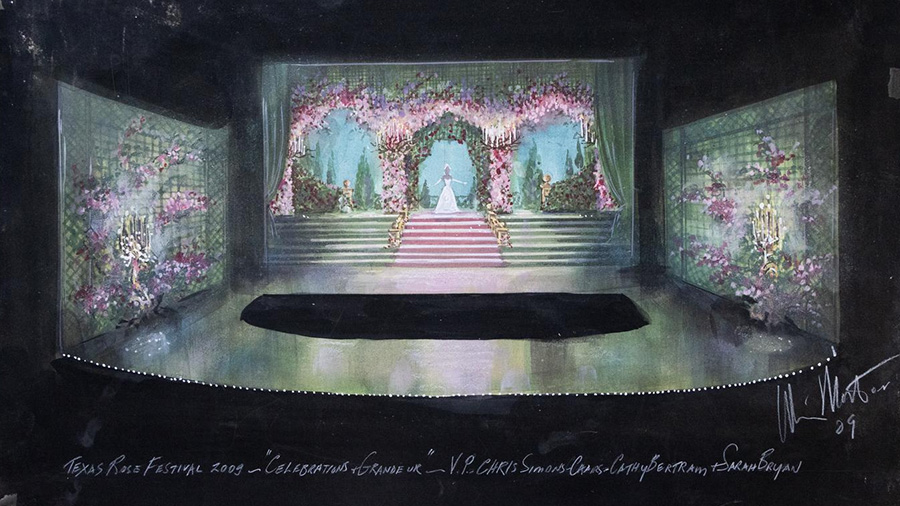
09/23/2025 - Winn Morton Collection
UNT Special Collections is excited to announce the completion of processing on the Winn Morton Collection. Acquired in 2023, the collection contains approximately 2,000 theatrical illustrations, sketches, and personal papers of Dallas designer, John “Winn” Winniford Morton. Materials are available for research use and can be viewed upon request in the Sarah T. Hughes Reading Room in Willis Library. UNT Special Collections is excited to announce the completion of processing on the Winn Morton Collection. Acquired in 2023, the collection contains approximately 2,000 theatrical illustrations, sketches, and personal papers of Dallas designer, John “Winn” Winniford Morton. Materials are available for research use and can be viewed upon request in the Sarah T. Hughes Reading Room in Willis Library. Winn Morton was born in Lancaster, Texas in 1928 and spent the early part of his life in the Dallas-Fort Worth Metroplex developing his skills as an artist and designer under the tutelage of Texas realist artist Alexandre Hogue and his wife, painter Maggie Joe Watson. After graduating from high school and attending one year at Southern Methodist University, Morton left Texas to attend the Ringling School of Art in Sarasota, Florida inspired by his love of the circus. By the late 1940s, Morton had moved to New York City to attend the Parsons School of Design. He soon shifted plans to join the United Scenic Artists, beginning a career as a scenic artist and costume designer. After a few years of part time work, Morton returned to Dallas as an associate designer for Peter Wolf Designs, where he designed costumes for the San Antonio Fiesta Battle of the Flowers parade, State Fair Musical Productions at Fair Park, and built window displays for Neiman Marcus. It was while working on a display for Neiman Marcus that he would meet his life partner and constant creative collaborator, Harry Lewis. Morton and Lewis moved back to New York in 1953 and from there, his career expanded to designing eye-catching costumes for dancers, ice skaters, and performers for the Roxy Theatre, Jones Beach Theatre, Broadway and Off-Broadway, live television productions, and the 1964 New York World’s Fair. In 1975, David Blackburn, then-president of Six Flags Show Productions, contracted Morton to assist in planning revue-style musicals for the Arlington park’s bicentennial celebration. He was hired on full-time as art director for the company and over the next ten years, designed elaborate costumes and sets for six theme park locations including Six Flags Over Texas, Six Flags Over St. Louis, Six Flags Over Georgia, Six Flags Great Adventure (New Jersey), Six Flags AstroWorld (Houston), and Six Flags Magic Mountain (California). After settling back in Dallas, Winn Morton became a highly sought-after designer for institutional galas, charity balls, and private parties hosted by wealthy members of the Dallas social scene in the 1980s and 1990s. Memorable events include the Cattle Baron’s Ball, Crystal Charity Ball, the Dallas Museum of Art’s (DMA) Beaux Arts Ball, Lady Bird Johnson’s 75th birthday party gala, the Mayor’s International Ball, and many lavish weddings and birthday parties. In 1982, nearing 40 years in the design industry, a point when most would begin to consider retirement, Morton took on designing one-of-a-kind gowns for the Texas Rose Festival in Tyler, Texas until 2019. Morton would work with up to 60 debutantes participating in the Queen’s Coronation, creating highly customized, opulent gowns to fit with the year’s extravagant theme. Winn Morton passed away in 2022, leaving behind a legacy of creativity, professionalism, and love of a craft that he dedicated seven decades of his life to. Costume and set design subjects in this collection include: Live Television San Antonio Fiesta Texas State Fair Roxy Theatre Industrials 1964 New York World’s Fair Jones Beach Theatre Broadway and Off-Broadway Ringling Bros. and Barnum & Bailey Circus Six Flags Dallas Social Scene Texas Rose Festival For more information about the collection, please visit the finding aid. View digitized items from the Winn Morton Collection in The Portal to Texas History. special_collections_in_the_news_collection_highlight
Posted:
09/23/2025
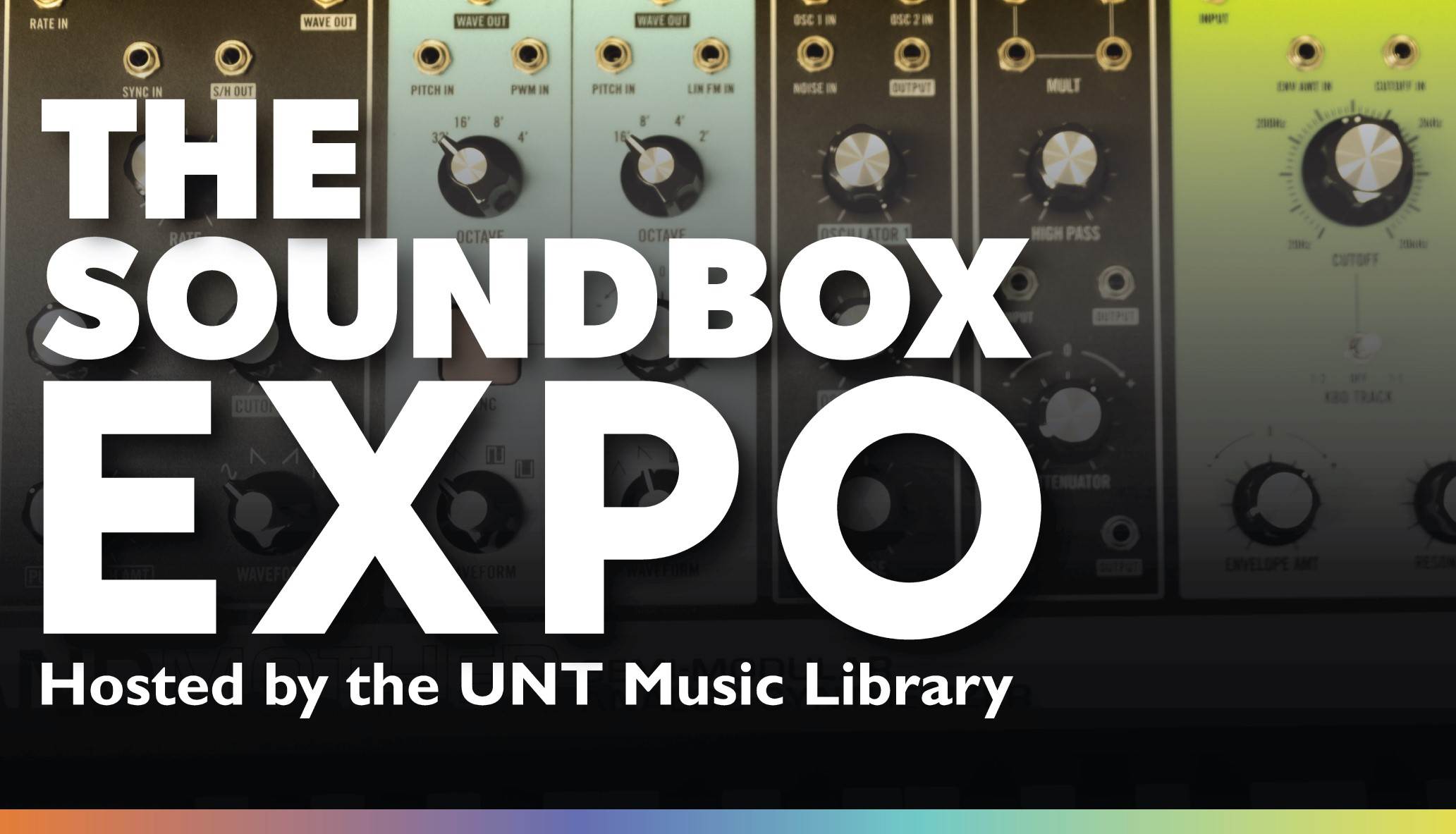
08/25/2025 - The Soundbox Expo - Hosted by the UNT Music Library
The UNT Music Library is excited to host The Soundbox Expo on Thursday, September 4th, 10:00AM–3:00PM in Voertman Hall, Voertman Lobby, and the Spec’s Courtyard at The College of Music! This will be a fun and informative event to give students a taste of the services and tools The Soundbox provides. The UNT Music Library is excited to host The Soundbox Expo on Thursday, September 4th, 10:00AM–3:00PM in Voertman Hall, Voertman Lobby, and the Spec’s Courtyard at The College of Music! This will be a fun and informative event to give students a taste of the services and tools The Soundbox provides. The Soundbox Expo The Music Library invites all students, faculty, and staff to The Soundbox Expo. At this event, Music Library staff will host workshops on music production and will share information about the equipment and services offered through The Soundbox Music Makerspace. What Is The Soundbox? The Soundbox Music Makerspace is a dedicated lab where music and audio technology are preserved and made available for creative work, exploration, and research. Open to all UNT community members without restrictions, The Soundbox is designed to provide an environment where users can engage with equipment that may be out of reach for many. The Soundbox is equipped with a suite of music production tools like synthesizers and digital audio workstations for use on-site, as well as a collection of recording and music production devices available to check out. We also offer specific support for Commercial Music students with our circulating laptops stocked with a range of music production software such as Logic Pro, Ableton Live, Native Instruments Komplete, and iZotope RX. The Soundbox is located in the Music Library, Willis Library, 4th Floor, but we are taking our music makerspace “on location” to the College of Music for this special event to share information about how this music makerspace can support students. This event is ideal for students who are new to the Commercial Music program and anyone who is curious about music production and would like to explore their creativity with music technology. We welcome faculty to bring their classes by to explore our pop-up makerspace and welcome staff needing a break to come by and explore, too. Event Information September 4th Stop by anytime between 10 a.m. and 3 p.m. Voertman Hall, Voertman Lobby, Spec’s Charitable Foundation Courtyard at the College of Music. We look forward to you joining us at this event. Please email musicref@unt.edu for questions. music_in_the_news_collection_highlight
Posted:
08/25/2025
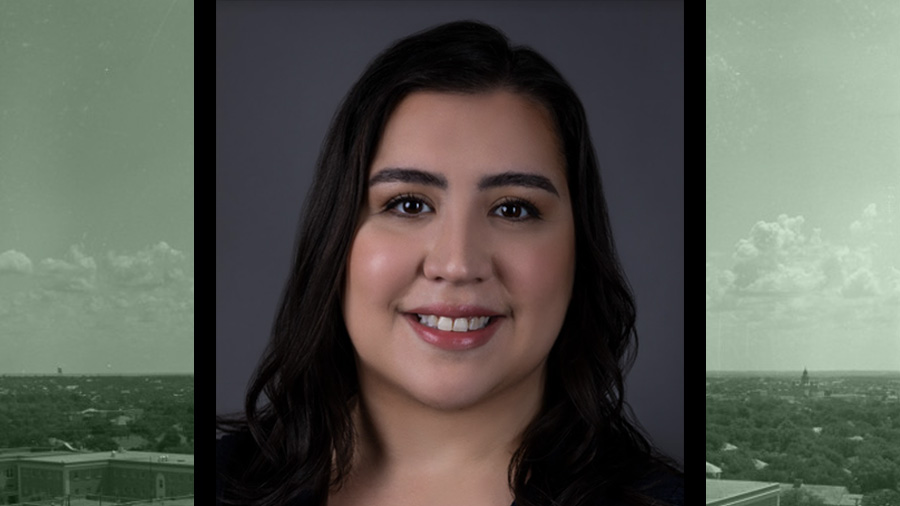
08/14/2025 - Fall 2025 Coursework Development Grant
UNT Special Collections is excited to announce the recipient of our Fall 2025 Coursework Development Grant - Dr. ToniAnn D. Treviño, Assistant Professor, Department of History. Fall 2025 Special Collections Coursework Development Grant UNT Special Collections is excited to announce the recipient of our Fall 2025 Coursework Development Grant - Dr. ToniAnn D. Treviño, Assistant Professor, Department of History. Dr.Treviño (she/her) is an Assistant Professor in the Department of History at the University of North Texas, where she also serves as Associate Director of Undergraduate Studies. A scholar of Latine history, she teaches courses in Mexican American history, twentieth-century U.S. history, and historical methods for undergraduate students. Dr. Treviño is committed to engaged pedagogy, designing undergraduate and graduate courses that provide students with hands-on experiences while encouraging them to explore the relevance of history in their everyday lives. With support from UNT Special Collections, Dr. Treviño will redesign HIST 3000: The Historian’s Craft, an undergraduate course on historical methodologies, to center community-engaged teaching, hands-on archival experience, and applied humanities. Students will investigate the rich history of social movements in the Denton-Dallas-Fort Worth region through sustained engagement with primary source materials housed in UNT Special Collections. Working directly with UNT student demonstration posters, historical student newspapers, and UNT’s Lesbian, Gay, Bisexual, Transgender, and Queer (LGBTQ) Archives, students will develop hands-on expertise in archival research methodologies while uncovering previously underexplored narratives of local activism and social change. Congratulations, Dr. Treviño! Special Collections staff is excited to work with you and your students this fall! The UNT Special Collections Coursework Development Grant is supported by the Toulouse Archival Research Program Endowment. special_collections_in_the_news
Posted:
08/14/2025
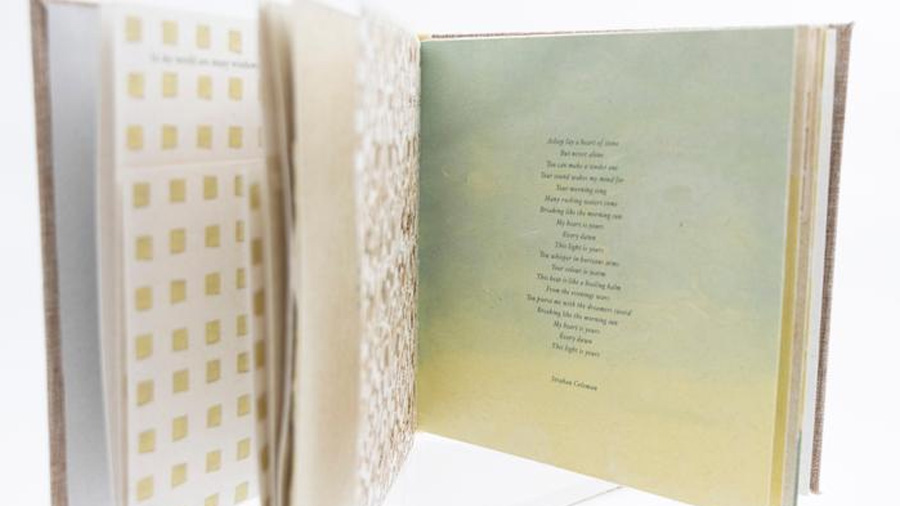
08/13/2025 - 14th Biennial Artists' Book Competition Call for Entries
UNT Special Collections is excited to announce the 2025-2026 Biennial Artists’ Book Competition. Held every other year since 1999, the competition encourages and fosters the development of student work in the medium of artists’ books, rewards excellence and creativity in the artists’ book field, and expands the library’s collection of artists’ books through the purchase of student works. UNT Special Collections is excited to announce the 2025-2026 Biennial Artists’ Book Competition. Held every other year since 1999, the competition encourages and fosters the development of student work in the medium of artists’ books, rewards excellence and creativity in the artists’ book field, and expands the library’s collection of artists’ books through the purchase of student works. For the 2025-2026 competition cycle, we are seeking entries that push the boundaries of the traditional codex format and embrace the roles of materiality and form in artists’ books. Artists are encouraged to interpret this cycle’s theme through the exploration of sculptural elements, bindings, book structures, materials, and more. Entries will be accepted December 1 - December 5, 2025. For more information about the competition, eligibility requirements, and entry information, please see the attached Call for Entries. special_collections_in_the_news
Posted:
08/13/2025
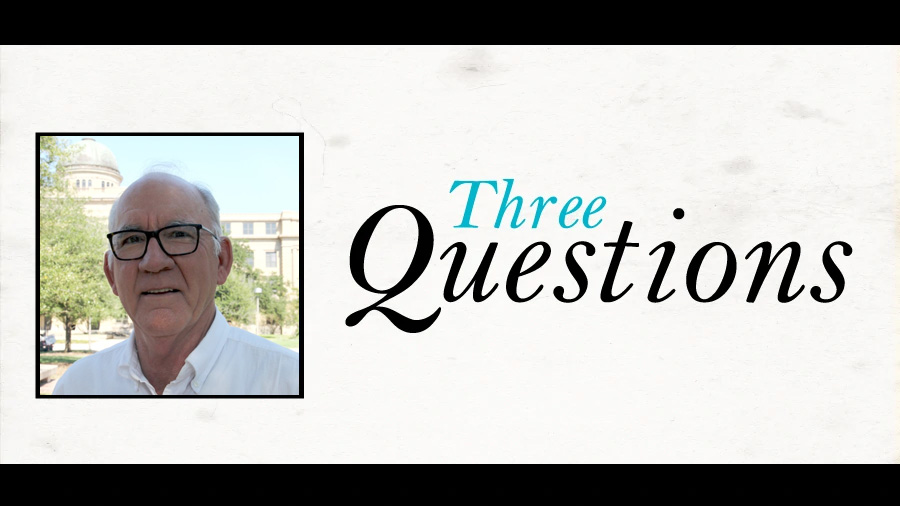
08/06/2025 - Three Questions with Dr. Walter D. Kamphoefner
Born, raised, and educated in Missouri, Walter D. Kamphoefner arrived at Texas A&M in 1988, where he specializes in immigration history and the Civil War era. Three Questions is an initiative to share the value that our faculty, students, and external patrons derive from using the Portal to Texas History at UNT Libraries. 1. How important is the Portal in your teaching, learning or research? My teaching, learning or research are closely intertwined, and the Portal plays in important role in all of them. It was an invaluable resource in annotating the memoirs of the first Aggie valedictorian, William A. Trenckmann, Preserving German Texan Identity (2019). Thanks to the Portal, there were virtually no personal references that we were unable to identify. I am also interested in the way that various ethnic and racial minorities interacted with each other, and here I made one of the most intriguing discoveries on the Portal: A Spanish language paper in San Antonio, El Bejareño, quoted the Neu Braunfelser Zeitung on October 27, 1855 to the effect that the antiforeign Know Nothings were scaring good prosperous German immigrants away from Texas. However, my excitement subsided somewhat when I realized, thanks to the Portal, that the Tejano editor probably got the story from an English language paper, several of which carried the story, rather than directly from the German. 2. How has the Portal changed the way you approach your research, teaching or learning? My Spanish is pretty rudimentary, three semesters worth nearly forty years ago, so research in that language was hardly feasible before. But searching for a name or an election month in the Portal has made it possible to utilize some Spanish language sources. Having grown up in the microfilm era and wearing thick lenses to show for it, the ease of research in newspapers of any language is incomparably more efficient thanks to the Portal. Another of my interesting discoveries there were letters written home in German by Texans serving in France in World War I, leading to my article titled “Doughboys auf Deutsch” in Yearbook of German American Studies vol. 54. 3. What do you want others to know about your research, teaching or learning? I’m teaching a capstone seminar on immigration history in the fall, so I want to expose my students to the excitement of primary source research. It’s hard to get them to the library these days, except for the coffee bar, so the fact that they can access primary sources, newspapers and others, through the Portal right from their laptop should enhance the quality of papers they produce. Born, raised, and educated in Missouri, Walter D. Kamphoefner arrived at Texas A&M in 1988, where he specializes in immigration history and the Civil War era. An anthology of immigrant letters which he co-edited, News from the Land of Freedom: German Immigrants Write Home (1991), was presented by German Chancellor Friedrich Merz to his hosts on his June 2025 visit to Washington, DC. Kamphoefner’s latest book, Germans in America: A Concise History (2021), will appear in German translation in fall 2025. external_relations_in_the_news_three_questions
Posted:
08/06/2025
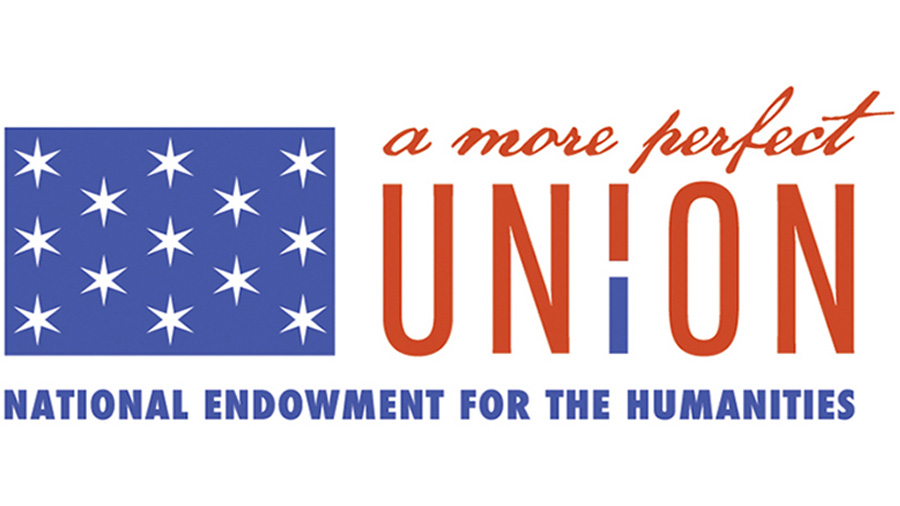
08/06/2025 - The National Endowment for the Humanities has awarded UNT Libraries $216,859 for an eighth consecutive round of the National Digital Newspaper Program
UNT Libraries are pleased to announce that the National Endowment for the Humanities and Library of Congress (LC) have selected us for an eighth, two-year cycle of the National Digital Newspaper Program (NDNP). This award, which comes to us through the NEH’s Division of Preservation and Access, will provide access to an additional 100,000 pages of Texas history via digitized newspapers on Chronicling America. UNT Libraries are pleased to announce that the National Endowment for the Humanities and Library of Congress (LC) have selected us for an eighth, two-year cycle of the National Digital Newspaper Program (NDNP). This award, which comes to us through the NEH’s Division of Preservation and Access, will provide access to an additional 100,000 pages of Texas history via digitized newspapers on Chronicling America. For this round, we will ask our advisory board to select newspapers from amongst South Texas and Texas border titles, including from Eagle Pass, Del Rio, San Benito, and San Antonio, with the goal of showcasing Texas newspaper history up to 1963, depending on the recommendation of the NDNP-Texas advisory board. For the years we propose to digitize, ranging from 1920-1963, all cities saw significant changes in military expansion and the civil rights conversation, as the U.S. underwent recovery from both World Wars and the Great Depression. In addition to including the newspapers on Chronicling America, titles will also be available on The Portal to Texas History through the Texas Digital Newspaper Program (TDNP). All newspapers uploaded to Chronicling America and TDNP are freely accessible for research and education. Consequently, we will continue to inform teachers and students about the importance of using newspapers as a window into history. Chronicling America is a partnership between the National Endowment for the Humanities and the Library of Congress to build a nationwide, open-access repository of digitally accessible historic newspapers. Special thanks to Spencer Houghton, the NDNP graduate student assistant, for his help in editing this announcement. digital_libraries_in_the_news_honors_and_awards
Posted:
08/06/2025
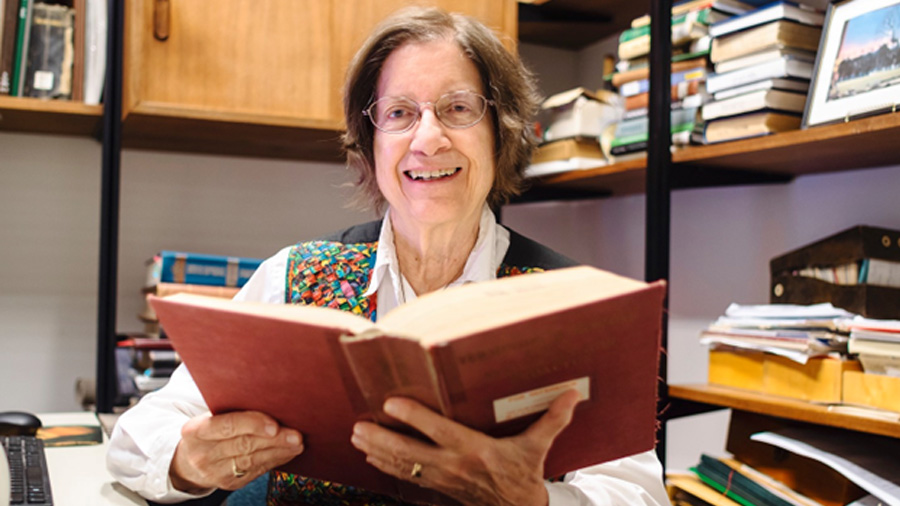
06/16/2025 - Donna Arnold, UNT Music Reference Librarian, Shines a Light on Serge Jaroff’s Don Cossack Choir
How does a legendary choir survive a war, but struggle to withstand the test of time? Writing for Interlude, our Music Reference Librarian, Donna Arnold, delves into the forgotten history of Serge Jaroff’s Russian émigré Don Cossack Choir in “Too Good to Be Forgotten: Serge Jaroff’s Don Cossack Choir.” How does a legendary choir survive a war, but struggle to withstand the test of time? Writing for Interlude, our Music Reference Librarian, Donna Arnold, delves into the forgotten history of Serge Jaroff’s Russian émigré Don Cossack Choir in “Too Good to Be Forgotten: Serge Jaroff’s Don Cossack Choir.” Decades after their meteoric rise to international fame, their legacy has fallen through the cracks in the world of classical choruses. Join Donna as she rediscovers their war-torn origins and inspiring story that still holds relevance today. music_in_the_news_collection_highlight
Posted:
06/16/2025
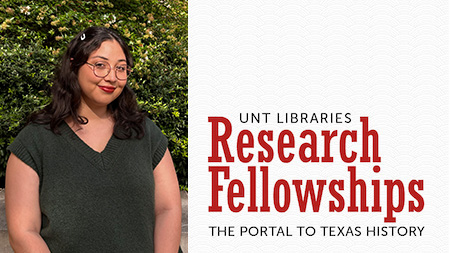
06/09/2025 - The Portal to Texas History 2025 Research Fellowship Awardee - Leslie N. Torres
Leslie Torres is a Ph.D. student in the History Department at Texas A&M University. Her research centers Mexican American women in state-based and greater national Progressive Era and reform movements, with focuses on racial identity formation and transnational influences. She is interested in unraveling how Mexican American women demanded cultural and political belonging through civil rights movements in and outside of Texas, while also navigating activism with a triple consciousness: race, gender, and citizenship. Torres received her Bachelor of Arts in History from the University of Texas-Rio Grande Valley in 2022 and her Master of Arts in History at Texas A&M University in 2024. The Portal to Texas History 2025 Research Fellowship Awardee Leslie N. Torres Project Title ‘Can’t Keep Good Girls Down’: Negotiations of Identity, Civil Rights, and the Cultural Belonging of Mexican American Women in Early 20th Century Texas Project Description This dissertation will examine the spaces Mexican American women cultivated in both interethnic and intra-ethnic reform organizations. Through newspapers, I seek to uncover an imagined community of civil rights activists – how they referred to one another, advertised or critiqued each other’s organizations, and how reformers implemented or decried transnational influences in their work. Overall, I seek to understand how Mexican American women reformers mobilized and unified their communities in and outside of Mexican cultural spaces, especially during the Americanization movement occurring simultaneously across the United States. Biography Leslie Torres is a Ph.D. student in the History Department at Texas A&M University. Her research centers Mexican American women in state-based and greater national Progressive Era and reform movements, with focuses on racial identity formation and transnational influences. She is interested in unraveling how Mexican American women demanded cultural and political belonging through civil rights movements in and outside of Texas, while also navigating activism with a triple consciousness: race, gender, and citizenship. Torres received her Bachelor of Arts in History from the University of Texas-Rio Grande Valley in 2022 and her Master of Arts in History at Texas A&M University in 2024. digital_libraries_in_the_news_honors_and_awards_research_fellowships
Posted:
06/09/2025

06/09/2025 - The Portal to Texas History 2025 Research Fellowship Awardee - Lucius Seger
Lucius Seger was born in Dayton, Ohio, where he graduated with a BA in history from Wright State University in 2019 and an MA in history from the University of Cincinnati in 2021. After moving to Fort Worth, Texas in 2021, Lucius started his Ph.D. in the history department at Texas Christian University. The Portal to Texas History 2025 Research Fellowship Awardee Lucius Seger Project Title Lynching and the Law: An Analysis of Mob Violence in Texas, 1874-1919 Project Description Lucius’s project, “Lynching and the Law: An Analysis of Mob Violence in Texas, 1874-1919,” uncovers the connections between anti-lynching politics and extrajudicial violence during the late nineteenth and early twentieth centuries. By looking at the state legislature’s attempts to end mob violence, my project adds additional depth to understanding the societal and political dimensions of Jim Crow Texas. Biography Lucius Seger was born in Dayton, Ohio, where he graduated with a BA in history from Wright State University in 2019 and an MA in history from the University of Cincinnati in 2021. After moving to Fort Worth, Texas in 2021, Lucius started his Ph.D. in the history department at Texas Christian University. Under the guidance of Dr. Gregg Cantrell, Lucius has published twenty entries in the Texas Handbook, authored several book reviews, presented his work at several historical conferences throughout the United States, and had several history-based internships over the course of his time at TCU. Currently, Lucius is a Ph.D. candidate who will hold the Benjamin W. Schmidt Memorial Scholarship for the 2025-2026 academic year. This award, granted by the TCU History Department, will allow him to work exclusively on his dissertation for one academic year without any teaching responsibilities. digital_libraries_in_the_news_honors_and_awards_research_fellowships
Posted:
06/09/2025
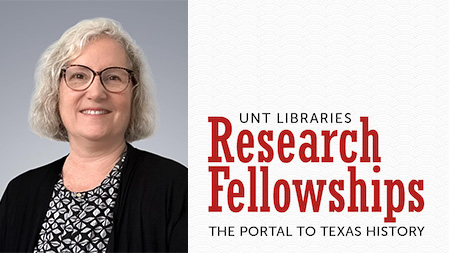
06/09/2025 - The Portal to Texas History 2025 Research Fellowship Awardee - Dr. Steph McDougal
Steph McDougal holds a Ph.D. in public history from Middle Tennessee State University, a Master of Science in historic preservation from the University of Texas at Austin School of Architecture, and a Master of Technical and Scientific Communication from Miami University (Ohio). In addition to dance halls and ballrooms, McDougal’s research focuses on historic cemeteries and the presence of African American resources on the National Register of Historic Places. The Portal to Texas History 2025 Research Fellowship Awardee Dr. Steph McDougal Project Title The Big Book of Texas Dance Halls Project Description Anticipated in 2027 from the University of Texas Press, The Big Book of Texas Dance Halls (working title) by architectural historian Steph McDougal is an encyclopedia of the Lone Star State’s historic music venues and community centers. McDougal, who co-founded the nonprofit organization Texas Dance Hall Preservation in 2007, has identified thousands of dance platforms, halls, ballrooms, South Texas salones, and fraternal lodge halls. Through text, photographs, and maps, The Big Book of Texas Dance Halls will be the first volume to comprehensively showcase the state’s vast collection of these buildings—those that are still standing and those that have been lost. Biography Steph McDougal holds a Ph.D. in public history from Middle Tennessee State University, a Master of Science in historic preservation from the University of Texas at Austin School of Architecture, and a Master of Technical and Scientific Communication from Miami University (Ohio). In addition to dance halls and ballrooms, McDougal’s research focuses on historic cemeteries and the presence of African American resources on the National Register of Historic Places. digital_libraries_in_the_news_honors_and_awards_research_fellowships
Posted:
06/09/2025
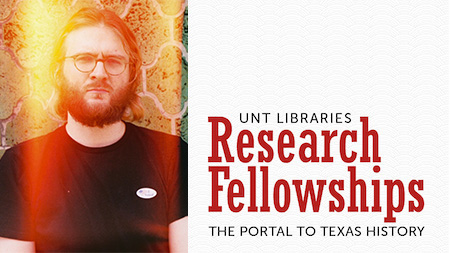
06/09/2025 - The Portal to Texas History 2025 Research Fellowship Awardee - Mark Mallory
Mark Mallory is a PhD candidate in History at Texas A&M University and an oral history volunteer with the Seminole Indian Scouts Cemetery Association. He received his M.A. in history from the University of Louisiana in 2021. In close collaboration with Black Seminole community organizations and community members from Texas and Coahuila, Mallory’s research explores the tensions between Black Seminole lived experiences and representations of Black Seminole history found in songs, films, children’s books, school curricula, public monuments, museum exhibits, and other media. Using English, Spanish, and Afro-Seminole Creole, Mallory has collected in-depth oral accounts from a range of community members in this Texas-Coahuila transborder region, primarily women and community elders. The Portal to Texas History 2025 Research Fellowship Awardee Mark Mallory Project Title Where Rests John Horse?: Memory, Gender, and Sustained Racial Illegibility in the Black Seminole Diaspora Project Description Rooted in close collaboration with Black Seminole community members, I draw on original oral accounts and a wide range of primary sources to examine the contested representation and frequent erasure of Black Seminoles since the nineteenth century. My work examines and contextualizes how these representations have abounded in songs, films, children’s books, paintings, school curricula, museum exhibits, tourism materials, public monuments, and government documents. Biography Mark Mallory is a PhD candidate in History at Texas A&M University and an oral history volunteer with the Seminole Indian Scouts Cemetery Association. He received his M.A. in history from the University of Louisiana in 2021. In close collaboration with Black Seminole community organizations and community members from Texas and Coahuila, Mallory’s research explores the tensions between Black Seminole lived experiences and representations of Black Seminole history found in songs, films, children’s books, school curricula, public monuments, museum exhibits, and other media. Using English, Spanish, and Afro-Seminole Creole, Mallory has collected in-depth oral accounts from a range of community members in this Texas-Coahuila transborder region, primarily women and community elders. digital_libraries_in_the_news_honors_and_awards_research_fellowships
Posted:
06/09/2025

06/09/2025 - The Portal to Texas History 2025 Research Fellowship Awardee - Matt Hinojosa
Matt Hinojosa (he/him) is a doctoral candidate in the Department of History at Princeton University and a visiting scholar in the Mexican American & Latina/o Studies Department at the University of Texas at Austin. He specializes in US nineteenth and twentieth-century history, history of race & ethnicity, and urban studies, with an emphasis on twentieth-century US Chicano and Latino social movements. The Portal to Texas History 2025 Research Fellowship Awardee Matt Hinojosa Project Title The Latino Color Line in the Age of Urban Crisis: Rebellion and the Struggle Against Police Brutality, 1950s-1980s Project Description My dissertation takes a comparative approach to the history of postwar Texas Chicano and Northeastern Puerto Rican community-police relations. By centering Latinos, my research offers a reevaluation of the history of US policing, arguing that police brutality was a central concern of the long Latino Civil Rights Movement. Biography Matt Hinojosa (he/him) is a doctoral candidate in the Department of History at Princeton University and a visiting scholar in the Mexican American & Latina/o Studies Department at the University of Texas at Austin. He specializes in US nineteenth and twentieth-century history, history of race & ethnicity, and urban studies, with an emphasis on twentieth-century US Chicano and Latino social movements. Matt is a proud first-generation college student and community college alumnus from San Antonio, Texas. After receiving an AA from Northwest Vista College, he received dual BAs in Anthropology and Mexican American Studies and an MA in History from the University of Texas at San Antonio, and an MA in History from Princeton University. His dissertation focuses on post-WWII community-police relations in US mainland Chicana/o and Puerto Rican communities, centering Latinas/os, the Latino Civil Rights Movement, and Latino radicalism in the history of US policing. digital_libraries_in_the_news_honors_and_awards_research_fellowships
Posted:
06/09/2025

06/06/2025 - Tim Owens Jazz and Broadcast Collection Digitized by a Generous Grant by The Recording Academy’s GRAMMY Museum Grants Program
Thanks to a generous grant by The Recording Academy’s GRAMMY Museum Grants Program, the UNT Music Library is proud to debut a wealth of jazz history through the Tim Owens Jazz and Broadcast Collection. Thanks to a generous grant by The Recording Academy’s GRAMMY Museum Grants Program, the UNT Music Library is proud to debut a wealth of jazz history through the Tim Owens Jazz and Broadcast Collection. This newly digitized collection showcases over 150 hours of interviews and performance masters recorded for National Public Radio’s jazz programs and includes interviews by Owens from the Peabody Award-winning series Jazz Profiles. With this new content, UNT continues to be a part of the global movement to progress music research and preservation. music_in_the_news_collection_highlight_jazz_syndicate
Posted:
06/06/2025
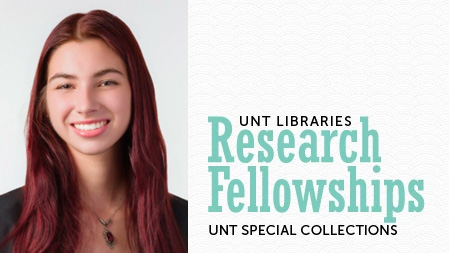
05/13/2025 - UNT Special Collections 2025 Research Fellowship Awardee - Isabella McCord
Isabella (Bella) McCord is an undergraduate student at the University of North Texas and member of the Honors College. She is currently pursuing a B.A. in Art History through the College of Visual Arts and Design, and B.A. in German Studies with a minor in English through the College of Liberal Arts and Social Sciences. Her research interests include avant-garde art movements of the early twentieth-century in Germany, with an emphasis on women artists. During the 2025-2026 academic year, she will continue her research on the work of artists including Käthe Kollwitz, Elfriede Lohse-Wachter, and Maria Uhden to understand the unique relationship between tragedy and women artists, especially those who are also mothers. UNT Special Collections 2025 Research Fellowship Awardee Isabella McCord Project Title Abschied und Tod: The Impact of Grief and Faith on Käthe Kollwitz from 1914 to 1924 Project Description This project will analyze the 1924 Abschied und Tod (Farewell and Death) portfolio by twentieth-century German artist Käthe Kollwitz held in the UNT Special Collections. It seeks to understand references to Christian theology throughout these works as an indication of Kollwitz’s return to faith as a source of inspiration and comfort in the aftermath of her son’s death during the first world war. Through this project, I will reference other materials from the Collections relating to Kollwitz’s life and conduct comparative visual and historical analysis in order to develop a thorough understanding of this portfolio that is absent from the present scholarship. Biography Isabella (Bella) McCord is an undergraduate student at the University of North Texas and member of the Honors College. She is currently pursuing a B.A. in Art History through the College of Visual Arts and Design, and B.A. in German Studies with a minor in English through the College of Liberal Arts and Social Sciences. Her research interests include avant-garde art movements of the early twentieth-century in Germany, with an emphasis on women artists. During the 2025-2026 academic year, she will continue her research on the work of artists including Käthe Kollwitz, Elfriede Lohse-Wachter, and Maria Uhden to understand the unique relationship between tragedy and women artists, especially those who are also mothers. special_collections_in_the_news_honors_and_awards_research_fellowships
Posted:
05/13/2025

05/13/2025 - UNT Special Collections 2025 Research Fellowship Awardee - Hannah Forsythe
Hannah Forsythe is a Ph.D. candidate in Media Studies at the University of Texas at Austin. Her dissertation, An Anatomy of Cinema, examines how cinema and visual media depict the medicalized body across four key organs—the eye, brain, heart, and uterus—exploring the cultural and institutional narratives that shape public understanding of health and medical authority. Drawing from her background in art history, design history, and film studies, Hannah blends textual analysis, archival research, and ethnographic methods. Her work is situated at the intersection of media studies, medical humanities, and medical anthropology. UNT Special Collections 2025 Research Fellowship Awardee Hannah Forsythe Project Title An Anatomy of Cinema: Dissecting Control, Ethics, and the Medicalized Body Across Visual Media Project Description My dissertation explores how the medicalized body is represented across visual media, including news broadcasts, film, and surgical recordings. At UNT, I will analyze archival materials from the KXAS-TV/NBC 5 News Collection and Morgue Records to investigate how local news visualized surgical procedures and public health narratives in the 1980s, particularly in relation to the heart, brain, uterus, and eye. Biography Hannah Forsythe is a Ph.D. candidate in Media Studies at the University of Texas at Austin. Her dissertation, An Anatomy of Cinema, examines how cinema and visual media depict the medicalized body across four key organs—the eye, brain, heart, and uterus—exploring the cultural and institutional narratives that shape public understanding of health and medical authority. Drawing from her background in art history, design history, and film studies, Hannah blends textual analysis, archival research, and ethnographic methods. Her work is situated at the intersection of media studies, medical humanities, and medical anthropology. special_collections_in_the_news_honors_and_awards_research_fellowships
Posted:
05/13/2025

05/13/2025 - UNT Special Collections 2025 Research Fellowship Awardee - Dr. Michael Demson
Dr. Demson is a professor of English at Sam Houston State University where he teaches courses in Romanticism, World Literature, Literary Theory and Foodways. UNT Special Collections 2025 Research Fellowship Awardee Dr. Michael Demson Project Title Chili Cookoffs: Cultural Anthropology and Texas BBQ Foodways Project Description My project aims to make accessible Cultural Anthropology as a critical approach available to those working in the broad field of cultural studies by way of a case study of the 1967 chili cookoff in Terlingua, TX. Biography Dr. Demson is a professor of English at Sam Houston State University where he teaches courses in Romanticism, World Literature, Literary Theory and Foodways. special_collections_in_the_news_honors_and_awards_research_fellowships
Posted:
05/13/2025
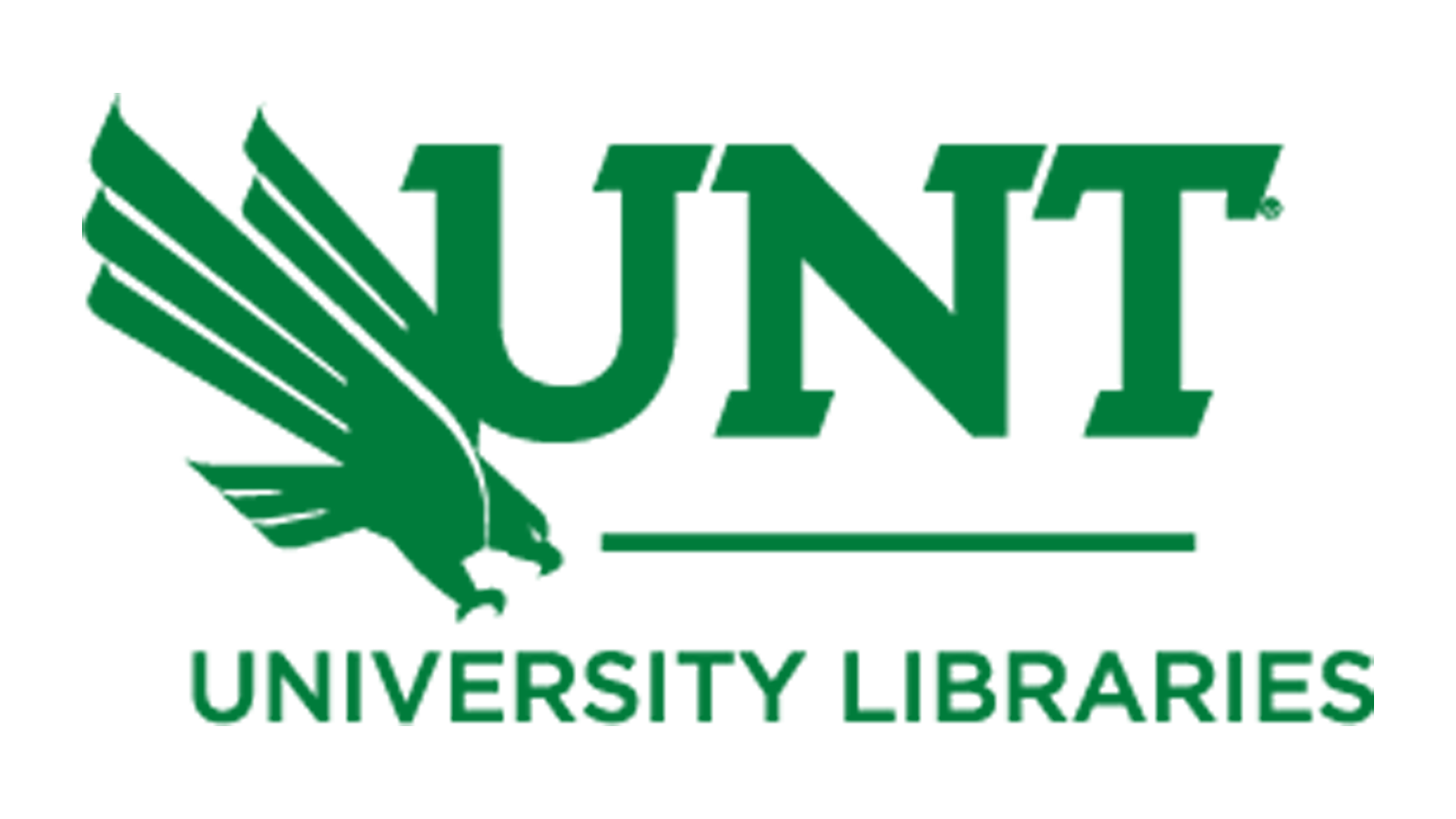
04/16/2025 - UNT Libraries Student Engagement Survey
The UNT Libraries Student Engagement Survey is for currently enrolled UNT students age 18 or older. If you are 18 years of age or older and are currently enrolled as a student at UNT you may qualify to participate in a research study examining your experiences with UNT Libraries’ services, collections and spaces. The survey will take 10-15 minutes to complete. Eligible subjects will be asked to complete an online survey. All eligible subjects will have the opportunity to enter into a randomized drawing to win one of three Beats headphones as compensation for completing the survey. During in-person recruitment events, participants may receive free UNT Libraries swag. Principal Investigator: Julie Leuzinger. For more information, please contact: Julie.Leuzinger@unt.edu. public_services_in_the_news_about_the_libraries
Posted:
04/16/2025
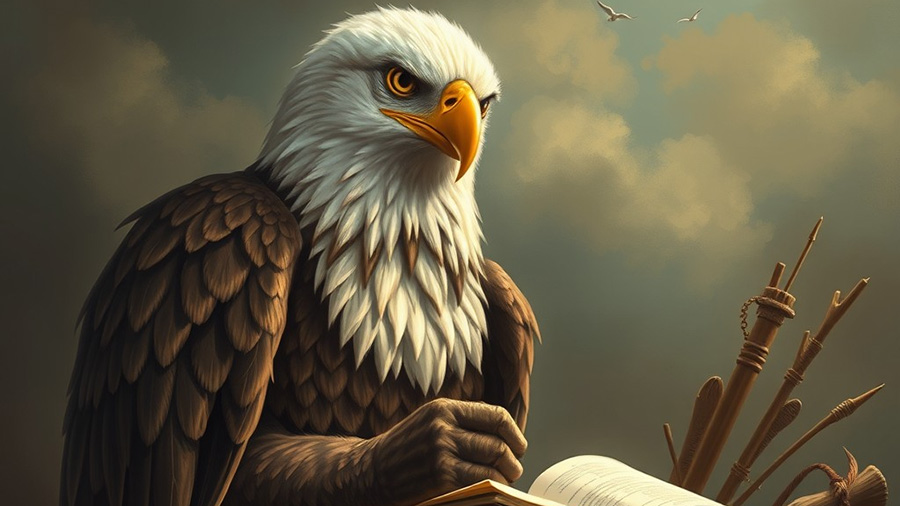
04/13/2025 - Scrappy's SpecFic Symposium
Dreaming of writing a fantastic story? Curious about the science fiction and fantasy industry? Come to Scrappy’s SpecFic Symposium talks with local speculative fiction authors and a look at UNT’s Science Fiction and Fantasy Study Collection! Registration is required. April 26, 2025, 1:00 p.m. to 5:00 p.m. Registration is required Willis Library 250H 1:00pm - Start 1:00-1:10pm - Introduction 1:10-1:30pm – Rhonda Eudaly – You Got Science in My Fiction Speculative fiction has been around for a long time in many forms, sometimes where you least expect it. Many works of traditional fiction contain specfic elements and tropes. Author Rhonda Eudaly introduces relevant examples and discusses how specfic might have been lurking in your favorite stories all along. 1:30-1:50pm – R.J. Hanson – You and No One Else (Building Your Brand) Self-publishing has become a valid pathway to writing success, giving authors both complete control and complete responsibility. Even traditionally published authors are expected to do more of their own marketing, branding, and readership building than 10 years ago. Successful self-published fantasy author R.J. Hanson offers his insights, recommendations, and tips. 1:50-2:00pm - Break 2:00-2:20pm – Jess Tucker UNT’s archives has a remarkable and rapidly growing speculative fiction collection in the southwest, featuring authors like Robert E. Howard, Warren Norwood, and Patricia Anthony. University archivist and collection developer Jess Tucker shares some of the collection’s oddities and treasures. 2:20-2:40pm – Jon Black – Researching What Never Happened Research forms part of the foundation of good speculative fiction, even if it’s just knowing what didn’t happen. Is there such a thing as too much research? Too little? Historical fiction author Jon Black helps you find the research approach that’s right for you. 2:40-2:50pm - Break 2:50-3:10pm – Michelle Muenzler – Brain Gremlins (Or What to Do When Your Brain Won’t Cooperate) A brain is a professional writer’s best friend … and worst enemy. Weird fiction author and poet Michelle Muenzler shares her experiences and advice for when your story’s real antagonist has become … your brain. 3:10-3:30pm Keith Lansdale – Being a Professional Liar for Money When the glamour and pretense come off, that’s when the hard work and the fun begin. Keith Landsdale, author of comics, film scripts, novels, and short stories, delves into the good, the bad, and the ugly of what being a professional liar for money, err, a professional speculative fiction author really means. 3:30-3:40pm - Break 3:40-4:40pm – Moderated panel Q&A with authors 4:40-5:00pm – Wrap up and optional book signing and selling 5:00pm - end Biographies: Rhonda Eudaly - Rhonda Eudaly lives in Arlington, Texas, where her wide variety of experience and skills is well-suited to her current job in local government. She’s married with dogs and an increasing horde of writing instruments, which she blogs about. Rhonda has a well-rounded publication history in all kinds of writing including novels like The Four Redheads of the Apocalypse, collaborations, and short stories. Check out her website—www.RhondaEudaly.com—for her latest publications and downloads. R. J. Hanson – R.J. Hanson has two books on Amazon ranked #1 in epic fantasy and dark fantasy, Roland’s Path and Fires that Forge. RJ began developing the epic sword and sorcery saga, Bloodlines Reforged, in 1996. The Bloodlines Reforged Saga tells the tales of a warrior’s courage, a scorned sorcerer’s revenge, a corrupt church’s perversion of faith, a grieving vampire dealing with loss, and a knight’s struggle to break his oath in order to fulfill it. R.J. has accumulated many real-world experiences that have given him a unique understanding of the human condition ranging from training in interview and interrogation techniques to hand to hand combat to SWAT tactics. RJ is a certified Firearms Instructor and Linguistic Statement Analyst as well as a former UNT TAMSter and working cowboy. Jon Black - Multi-award winning author Jon Black writes historical fiction with pulp, supernatural, or Mythos twists. His Bel Nemeton series combines 6th century Arthurian historical fantasy with brainy 21st century pulp. Its first installments, Bel Nemeton and Caledfwlch, were named Best Thriller Novels of 2018 and 2020 in the Critters’ Readers’ Poll. Reviewers have called the series “An Intellectual ‘Tomb Raider’” and “Books that should make Dan Brown weep with jealousy.” His Jazz Age, music-driven supernatural mystery Gabriel’s Trumpet was Critters’ Best Horror Novel of 2019. Raised in Denton, Texas, his previous jobs include archaeological excavator, Benjamin Franklin impersonator, embassy worker, graduate assistant, newspaper reporter, pizza jockey, political speechwriter, small business owner, substitute teacher, and summer camp counselor…not always in the order one might expect. Michelle Muenzler - Known at local science fiction and fantasy conventions as “The Cookie Lady”, Michelle writes fiction both dark and strange to counterbalance the sweetness of her baking. Her short fiction and poetry can be read in numerous science fiction and fantasy magazines, and she takes immense joy in crinkling words like little foil puppets. Michelle is a SFWA member and represented by Howard Morhaim of the Howard Morhaim Literary Agency. Keith Lansdale - Keith Lansdale writes comics, film scripts, novels, and short stories. Keith has made films such as The Pale Door and Christmas With The Dead. Among his writing credits are, the novel Big Lizard with Joe R Lansdale, as well as the short stories “Hoppity White Rabbit Done Broke Down” and “It Goes With Everything.” Keith also co-wrote the children’s story “The Companion” when he was twelve with his younger sister which was picked up by the television show Creepshow and co-authored the children’s book In Waders From Mars. special_collections_in_the_news
Posted:
04/13/2025

04/08/2025 - Three Questions with Omar Valerio-Jiméniz
Dr. Omar Valerio-Jiméniz is a Professor of history and Associate Dean for Graduate Studies at UT San Antonio. Three Questions is an initiative to share the value that our faculty, students, and external patrons derive from using the Portal to Texas History at UNT Libraries. 1. How important is the Portal in your teaching, learning or research? The Portal to Texas History has been an indispensable tool for my research on textbook reform and archival preservation in Texas and New Mexico. My book project examines four scholars in Texas and four scholars in New Mexico during the late nineteenth and early twentieth centuries. For the Texas portion of my study, I have used the Portal to collect primary sources on the educational reform efforts of historian Carlos E. Castañeda, writer and historical preservationist Adina de Zavala, lawyer and legislator José T. Canales, and writer and educator Elena Zamora O’Shea. The Portal contains over 1,000 documents (including newspaper stories, letters, pamphlets and government documents) that pertain to my current book project. Among the advantages of conducting research on the Portal are the ease of use of the search engine, the convenience of accessing digital copies of sources from various archival depositories, and the ability to easily save digital copies of documents. I have also used documents found on the Portal in my courses on Mexican American history, South Texas, and public history. The Portal makes it easy to find primary sources (e.g., newspapers, letters, photographs) that I can use in my lectures or for class discussions. When I demonstrate to students how simple it is to search on the Portal and the wide variety of primary sources available, they instantly see the usefulness of this great research tool. 2. How has the Portal changed the way you approach your research, teaching or learning? The Portal has changed some of my research strategies for accessing digital sources. Before I began using the Portal, I usually consulted several online databases available through my university’s library to conduct online searches. This process was often time-consuming because the various databases have different search functions and often the same search cannot be completed across these databases. Now, I often use the Portal before using other online databases because the Portal has a diverse set of documents from numerous archival depositories. Once I’ve examined the sources available through the Portal, I turn to the other online databases to fill in any gaps. I often turn to the Portal when I cannot find a newspaper in the databases available through my university library. The variety of sources available on the Portal continuously surprises me. Whenever I need an image for a lecture that I am preparing, I turn to the Portal because its collection of newspapers and photographs are quite useful in my teaching. 3. What do you want others to know about your research, teaching or learning? My current research focuses on the educational reform and archival preservation efforts of four Mexican American scholars and activists in Texas and four in New Mexico. As I was researching my last book, Remembering Conquest, I came across documents on the four individuals from Texas and one individual from New Mexico that form part of my study. I was surprised to learn that efforts to reform textbooks had begun in the late nineteenth century (for New Mexico) and early twentieth century (for Texas). The eight scholars and activists in my study sought to change the negative depictions of Mexican Americans found in public school textbooks at the time. They also sought to preserve primary sources pertaining to Mexican American history so that future historians would have these sources available for their research. In some ways, the archiving of sources on Mexican American history on the Portal is a continuation of these early preservation efforts. Biography: I was born in Matamoros, Tamaulipas, but grew up in South Texas since I entered second grade. My childhood was spent in a bilingual and bicultural environment where my family often crossed the international border to visit family and friends. I obtained my bachelor’s degree at MIT, and worked as an electrical engineer in the Houston for five years before deciding to pursue a doctorate in history at UCLA. My first book, River of Hope, examines the transformations experienced by eighteenth- and nineteenth-century residents of the South Texas border region where I grew up. I have also published articles and edited anthologies on Latinos in the Midwest, the U.S.-Mexico border, Latinos, and U.S. West. I have taught at universities in California, Iowa, New York, and Texas. I love being back in Texas and teaching in San Antonio. external_relations_in_the_news_three_questions
Posted:
04/08/2025
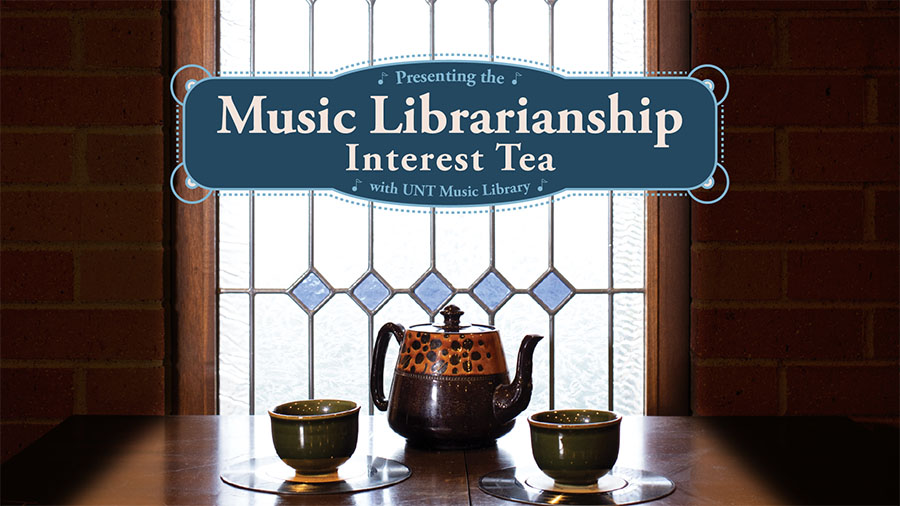
04/02/2025 - Music Librarianship Interest Tea
Curious about a career in music librarianship? The UNT Music Library staff invites you to join us as we spill the tea on the profession! Whether you’re exploring career options or just want to chat with librarians, we’re excited to meet you and answer your questions. Curious about a career in music librarianship? The UNT Music Library staff invites you to join us as we spill the tea on the profession! Whether you’re exploring career options or just want to chat with librarians, we’re excited to meet you and answer your questions. The event will be hosted on Zoom on April 16, 2025, at 2:00 PM CT. music_in_the_news
Posted:
04/02/2025
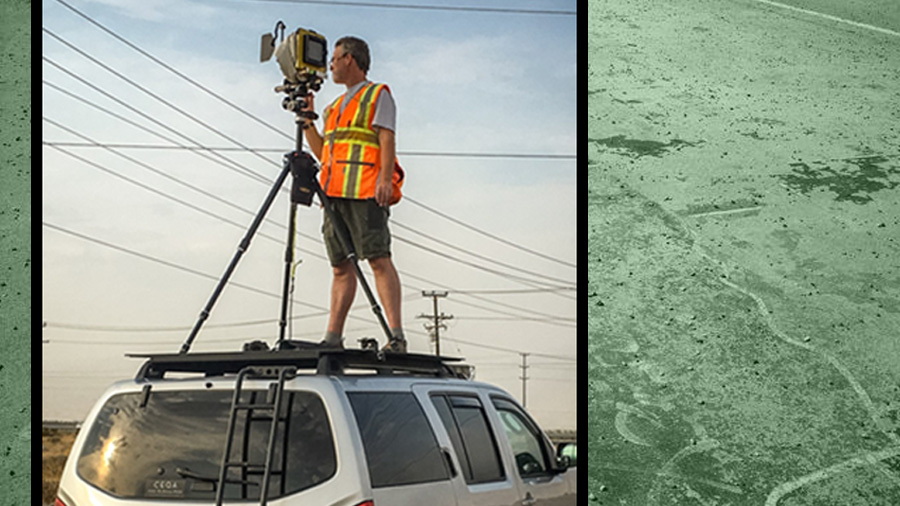
03/19/2025 - Documentation and Preservation Lecture Series: Historic American Buildings Survey (HABS)
The Cathy N. Hartman Portal to Texas History Endowment and the University Libraries Research and Innovation Grants are pleased to present a lecture by Stephen Schafer. On Wednesday, April 23, 2025 at 2:00 PM on Zoom the Cathy N. Hartman Portal to Texas History Endowment and the University Libraries Research and Innovation Grants are pleased to present a lecture by Stephen Schafer. Stephen Schafer (AKA: Schäf) is an architectural photographer driven by a passion for preserving our built history. Specializing in large-format, archival large-format black-and-white photography, he creates meticulously detailed records that meet the rigorous standards of the Historic American Buildings Survey (HABS). Stephen has dedicated his career to documenting cultural landscapes, parks, and diverse engineering projects across twenty states and the island of Guam. His work, extensively contributed to the prestigious HABS, HAER, and HALS collections at the Library of Congress, underscores his commitment to preserving the breadth and depth of our built environment. Stephen’s clientele includes a diverse range of institutions, corporations, and government agencies, from major universities and architectural firms to historical societies and federal, state, and local entities. Notably, he documented 300 historic places for the bestselling book Preserving Los Angeles by Ken Bernstein. Stephen’s expertise extends beyond photography; he’s a sought-after speaker, educator at institutions like USC, and active preservationist in his community, serving on the San Buenaventura Conservancy for Preservation. He rehabilitated his 1881 Victorian farmhouse in Ventura, where his dedication to preserving the past continues. Instagram: @HABS_photographer Web: https://habsphoto.com/ digital_libraries_presentations_and_lectures
Posted:
03/19/2025
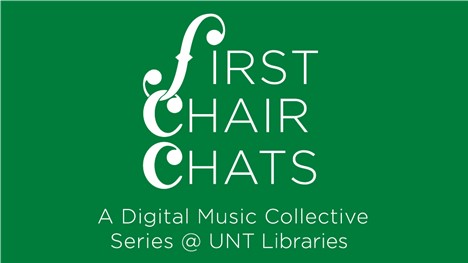
03/19/2025 - First Chair Chats: Preserving Your Home Music Collections
The UNT Music Library is excited to announce an upcoming First Chair Chat event on Preserving Your Home Music Collections. This discussion features the Music Library Association’s Preservation Committee and their guest panelists on April 10th at 2 p.m. (ET)/ 1 p.m. (CT)/ 12 p.m. (MT)/ 11 a.m. (PT). The UNT Music Library is excited to announce an upcoming First Chair Chat event on Preserving Your Home Music Collections. This discussion features the Music Library Association’s Preservation Committee and their guest panelists on April 10th at 2 p.m. (ET)/ 1 p.m. (CT)/ 12 p.m. (MT)/ 11 a.m. (PT). Experts in audio, paper, and digital preservation, as well as copyright and disaster management, will offer valuable insights on safeguarding physical and digital music collections. Attendees will have the opportunity to participate in an interactive Q&A throughout the discussions. Whether you are preserving vinyl records, sheet music, digital files, or memorabilia, this event provides the essential knowledge to help you keep your collection safe for future generations. Submit questions ahead of time or you are welcome to ask questions live during the discussion. The event will be hosted on Zoom, please register to get the meeting link. music_in_the_news
Posted:
03/19/2025
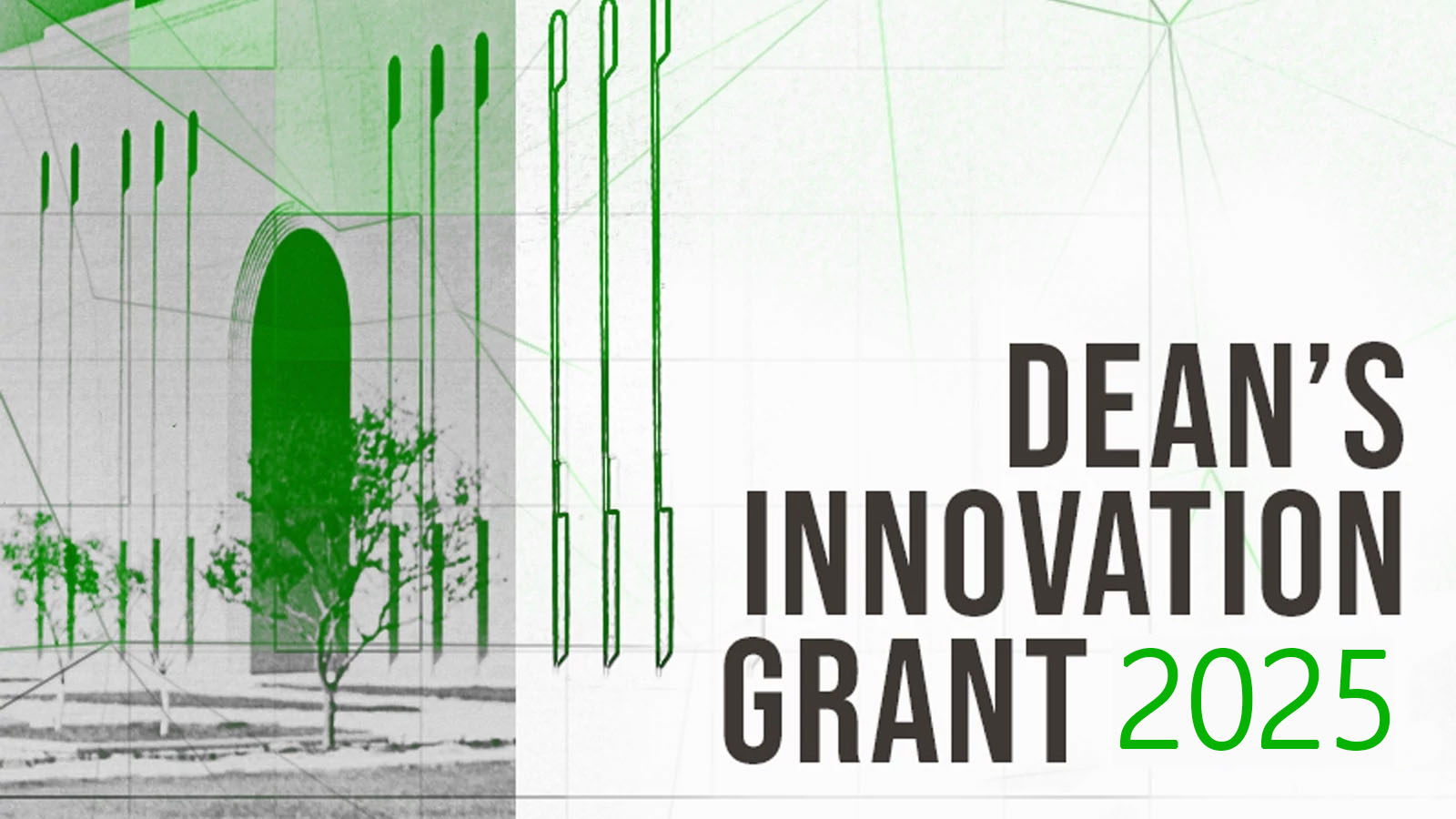
02/12/2025 - Dean's Innovation Grant 2025
The University of North Texas Libraries’ Dean’s Innovation Grant, provides funding to research and projects within the UNT Libraries. The University of North Texas Libraries’ Dean’s Innovation Grant, provides funding to research and projects within the UNT Libraries that promote scholarship and contribute to the gathering of knowledge that helps improve our libraries, our university, and the community. Dean’s Innovation Grant 2025 Awardees Live D&D @ UNT Lindsay Duke, Diane Robson, Steven Guerrero, Dakota Scott, Jenn Washburn Project Description: The Media Library will host a live performance of Dungeons & Dragons with a student cast lead by Lindsay Duke as Dungeon Master. This will be performed in front of a live audience and streamed via the Media Library Discord server. The event will be held on October 30th in the Lyceum. The objective will be to expand our engagement with the student population, connect with the role-playing community on campus, and showcase the Media Library’s Role-Playing guides and gaming collections. Texas Historic American Buildings Project: Research and Praxis Mark Phillips Project Description: The Heritage Documentation Programs (HDP) are administered by the National Park Service to document the historic sites and structures across the United States through the creation of measured drawings, large-format photographs, and historical reports. To better understand the history of the HDP, its role in documenting the built environment in the state of Texas, and to develop greater insight into the technical requirements of these programs to inform future projects, I propose this two-stage project involving a research stage and a praxis stage to assist in documenting the built environment in Texas according to the guidelines of the HDP. Library on the Go: A Pop-up Library Initiative Abby Stovall, Briana Knox, Madison Brents, Jo Monahan Project Description: Create a pop-up library kit that can be reserved and utilized by librarians and staff within the University of North Texas Libraries. This kit will incorporate aspects of a traditional library services desk, but mobile, so that pop-up events are recognizable as a library point-of-service. After researching, purchasing, and assembling the kit, project members would pilot various pop-up events in different places on campus with different purposes and assemble a Library Guide with tips and ideas for library employees to be inspired to host their own Pop-Up Library. RapidMiner Karen Harker, Sephra Byrne, Carol Hargis, Jen Rowe, Frank Gosnell, Garrett Rumohr, Deborah Caldwell Project Description: The objective of this project is to for UNT Libraries staff to gain experience in modeling a variety of data with flatter learning curve than traditional programming languages like Python and R. The purpose of gaining this experience is to improve library resources, services, and processes through the use of data modeling. Key projects include predicting student outcomes in First Year Writing II courses for those who did and did not receive library instruction, predicting users and non-users of library resources and services, and predicting use and non-usage of journals. Assessment of the Representation of Libraries’ Juvenile Collection Sephra Byrne, Sian Brannon, Todd Enoch, Stacey Wolf, Jo Monahan, Greg Hardin, Marcia McIntosh, Sarah Lynn Fisher Project Description: We aim to establish a benchmark of representation of voices and characters within the UNT Libraries’ Juvenile Collection so that pre-service teachers and library science students will assured of access to high-quality literature and books that reflect the communities they will be serving. LIMIT Digital Streaming Maristella Feustle, Leah De Leon Project Description: The proposed project entails connecting directly with rights holders of local music items in UNT’s LIMIT Collection to develop a robust digital streaming catalog. The intended goal is to provide local, independent musicians with an online platform for their music, and the funds would allow the library to provide an incentive of a non-exclusive licensing deal. The primary stakeholders of this project are the rights holders, the UNT Music Library, as well as the broader local/independent music community of Texas and researchers studying music scenes and music collection preservation tactics. administrative_office_in_the_news_honors_and_awards_dean_s_innovation_grant
Posted:
02/12/2025
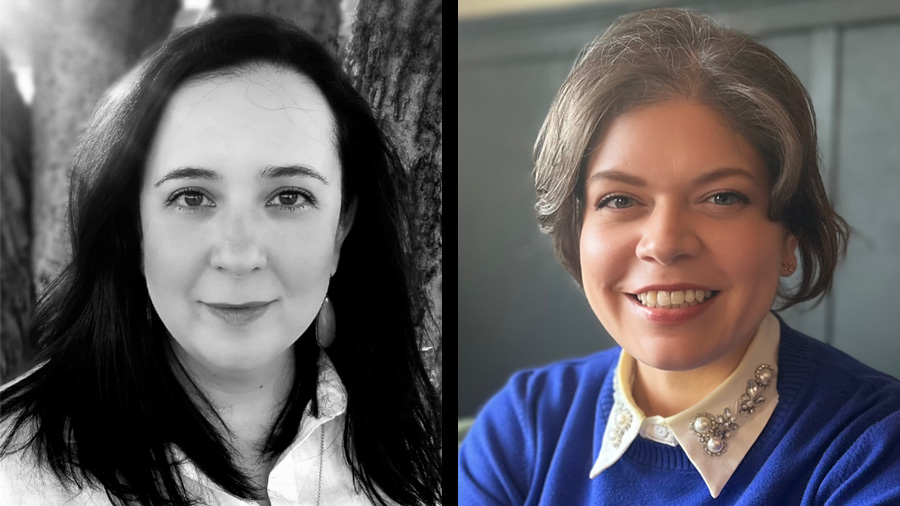
02/06/2025 - Spring 2025 Coursework Development Grant
Special Collections is pleased to announce the recipients of the Coursework Development Grant for the Spring 2025 semester. Supported by the Toulouse Archival Research Program Endowment, the grant was established in 2019 to partner with faculty at UNT to develop assignments for courses that will utilize collections and materials held by Special Collections. Recipients of the grant are awarded $500 in research and professional development funding. Spring 2025 Special Collections Coursework Development Grant Special Collections is pleased to announce the recipients of the Coursework Development Grant for the Spring 2025 semester. Supported by the Toulouse Archival Research Program Endowment, the grant was established in 2019 to partner with faculty at UNT to develop assignments for courses that will utilize collections and materials held by Special Collections. Recipients of the grant are awarded $500 in research and professional development funding. The Spring 2025 winners are: Dr. Mónica Salazar, Senior Lecturer, Department of Art History Dr. Salazar is a Senior Lecturer in the department of Art History at the University of North Texas, where she teaches courses in postmodernism, theories of contemporary art, as well as the history of photography and modern and contemporary Latin American art. Her research considers questions regarding Mexico’s entrance into the globalized world order and the consequences this has for the visual arts. Students in her upper-level undergraduate History of Photography course will study holdings in the Byrd Williams Family Photography Collection as inspiration for a creative self-portrait assignment. Dr. Layla Seale, Visiting Assistant Professor, Department of Art History Dr. Seale is a Visiting Assistant Professor in the Department of Art History at UNT, specializing in Medieval Art. Her research analyzes how medieval images of demons reveal a broad spectrum of religious and cultural ideologies and anxieties. Recently, her work on demons and labor, titled “Work is Hell: Demon Laborers in Late Medieval Art,” was published in Different Visions, a peer-reviewed, open access journal devoted to progressive art history scholarship. Undergraduate students in her art history course, Illuminating the Middle Ages: The Art of Medieval Manuscript, will analyze UNT Special Collection’s rich collection of medieval manuscript leaves and fragments during multiple visits, and submit written responses explaining their reactions to the materiality of these objects with the option of submitting a creative assignment replicating the techniques they analyzed. During individual visits, students will also consult the robust collection of illuminated manuscript facsimiles. Congratulations, Dr. Salazar and Dr. Seale! UNT Special Collections is excited to work with you and your students this semester! special_collections_in_the_news
Posted:
02/06/2025
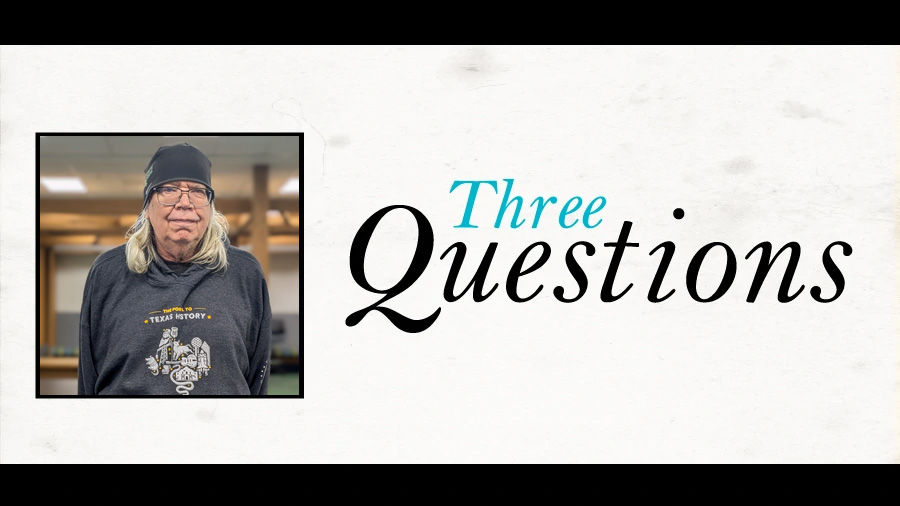
01/16/2025 - Three Questions with Gene Forst
Three Questions is an initiative to share the value that our faculty, students, and external patrons derive from using the Portal to Texas History at UNT Libraries. Three Questions is an initiative to share the value that our faculty, students, and external patrons derive from using the Portal to Texas History at UNT Libraries. 1. How important is the Portal in your teaching, learning or research? The Portal to Texas History, especially the Texas newspapers collection, is invaluable for my research in mid to late 19th century Texas history. My research interests include alternative Texas political parties of the 1870s and 1880s, the many attempts to create statewide labor organizations in the 1880s and 1890s and different tries to develop a socialist future for the state. The Portal’s newspapers provide a wide variety of views and opinions on these topics from different regions of Texas. Because most newspapers of the period had short lives or ownership and editors constantly changed, the Portal’s newspaper directories and town directories are very helpful. 2. How has the Portal changed the way you approach your research, teaching or learning? Newspapers of the period relied on their exchanges with other papers. They printed items from those papers to fill space in their own paper. Hence, with the number of papers available in the Portal you can piece together the views of papers no longer extant. Also, perhaps to fill space, most papers printed verbatim speeches, letters and minutes of innumerable citizen mass meetings without the filtering of a third party. As more papers are added to the Portal, new information can arise that could modify a prior conclusion. So, in a sense, your research is never complete. 3. What do you want others to know about your research, teaching or learning? Research in the Portal can be addictively entertaining. You can find yourself tracking stories and people that lead you far from your original intent. The Portal to Texas History is UNT’s signal contribution to scholarship across Texas and beyond. It should be promoted and bragged on by the UNT academic community. Gene Forst is retired and lives in Denton, Texas. external_relations_in_the_news_three_questions
Posted:
01/16/2025
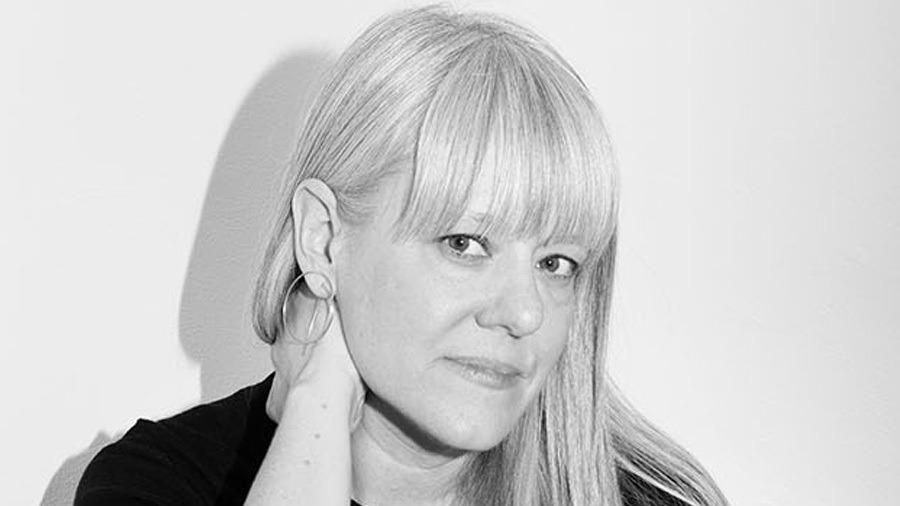
01/06/2025 - Artist Lecture: Kelli Connell
The Cathy N. Hartman Portal to Texas History Endowment, the UNT Libraries Special Collections Department, and the Department of Studio Art, Photography Area are pleased to present a lecture by Kelli Connell. On Thursday, January 16, 2025 at 11:30 AM the Cathy N. Hartman Portal to Texas History Endowment, the UNT Libraries Special Collections Department, and the Department of Studio Art, Photography Area are pleased to present a lecture by Kelli Connell. Kelli Connell’s work investigates sexuality, gender, identity and photographer / sitter relationships. Her work is in the collections of the Metropolitan Museum of Art, Los Angeles County Museum of Art, and the J Paul Getty Museum among others. Recent publications include Kelli Connell: Pictures for Charis (Aperture & Center for Creative Photography), PhotoWork: Forty Photographers on Process and Practice (Aperture) and the monograph Kelli Connell: Double Life (DECODE Books). Connell has received fellowships from the Guggenheim Foundation, MacDowell, and The Center for Creative Photography. Kelli Connell lives in Chicago where she teaches at Columbia College Chicago. Thursday, January 16, 2025 at 11:30 AM Room 250H in the Willis Library Additional information about this event can be found on the University Libraries calendar digital_libraries_presentations_and_lectures
Posted:
01/06/2025
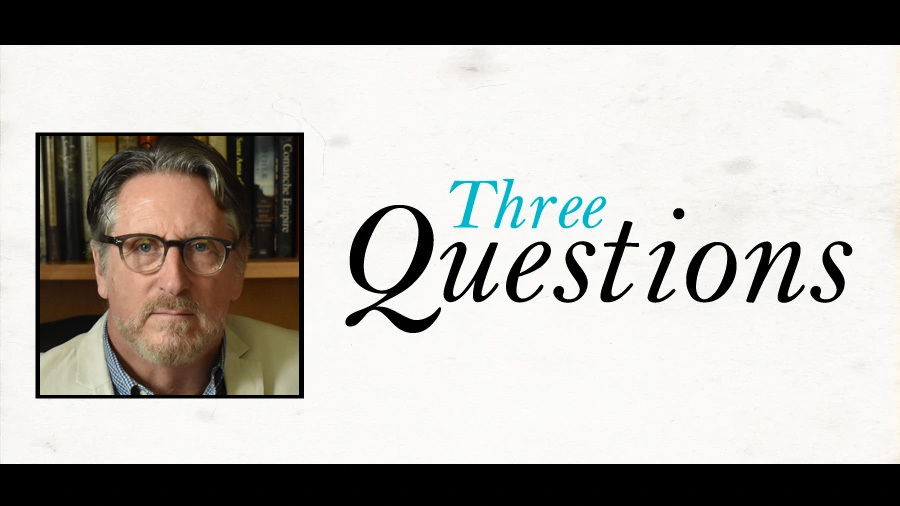
01/06/2025 - Three Questions with Sam Haynes
Dr. Sam Haynes is a professor of history at the University of Texas at Arlington, and is the Director of the Center for Greater Southwestern Studies. Three Questions is an initiative to share the value that our faculty, students, and external patrons derive from using the Portal to Texas History at UNT Libraries. 1. How important is the Portal in your teaching, learning or research? As a Texas historian, I have been a regular — and often daily — visitor to the site since it first went online twenty years ago. My own area of research is the 19th century, and I have come to rely heavily on the Portal, and particularly its digital newspaper collection. Combing through old newspapers used to be an incredibly arduous and time-consuming process, requiring countless hours at archives or on microfilm machines. By collecting and digitizing newspapers from across the state, the Portal is nothing less than an indispensable resource for scholars of Texas history using print media in their research. What’s more, the Portal is much more user-friendly than other digital newspaper sites, one that students find accessible as well. 2. How has the Portal changed the way you approach your research, teaching or learning? As a pedagogical tool, the Portal is essential for anyone teaching Texas history at the college level. I offer a research course at UT Arlington for undergraduate history majors, and last year students were tasked with writing an in-depth paper on a particular Texas monument. Some chose one of the many Confederate veterans’ memorials erected in towns and cities in the early 20th century, while others examined statues built to celebrate the state’s centennial anniversary in 1936. All these construction projects received considerable attention in the local press, so the Portal’s digital newspaper collection was invaluable, allowing students to get a real sense of what each monument meant to their respective communities when they were being built. Several told me that researching local newspapers via the Portal was their favorite part of the course. 3. What do you want others to know about your research, teaching or learning? In 2015 I began work on a digital humanities project, Texas in Turmoil: Interethnic Violence, 1821-1879, which seeks to map sites of conflict in Texas from the Mexican republic to the end of the so-called Indian Wars. Texas was one of the most ethnically diverse regions in North America during much of this period, and this project has enabled me, and I hope will enable other historians, to better understand how the many peoples of Texas fought for land, resources and power. In my research I have drawn from historical monographs, local county histories, archival materials at the Texas State Library and the National Archives, and, of course, the Portal’s newspaper collection. When complete, the Texas in Turmoil project will have mapped more than 3,000 sites of conflict in nineteenth century Texas involving Anglo-Americans, Native Americans, Hispano Americans, and those of African descent. I am hopeful that the website will provide scholars and teachers with new ways to understand and visualize the interethnic and interracial struggles that represent such a conspicuous and protracted feature of the state’s early modern past. external_relations_in_the_news_three_questions
Posted:
01/06/2025